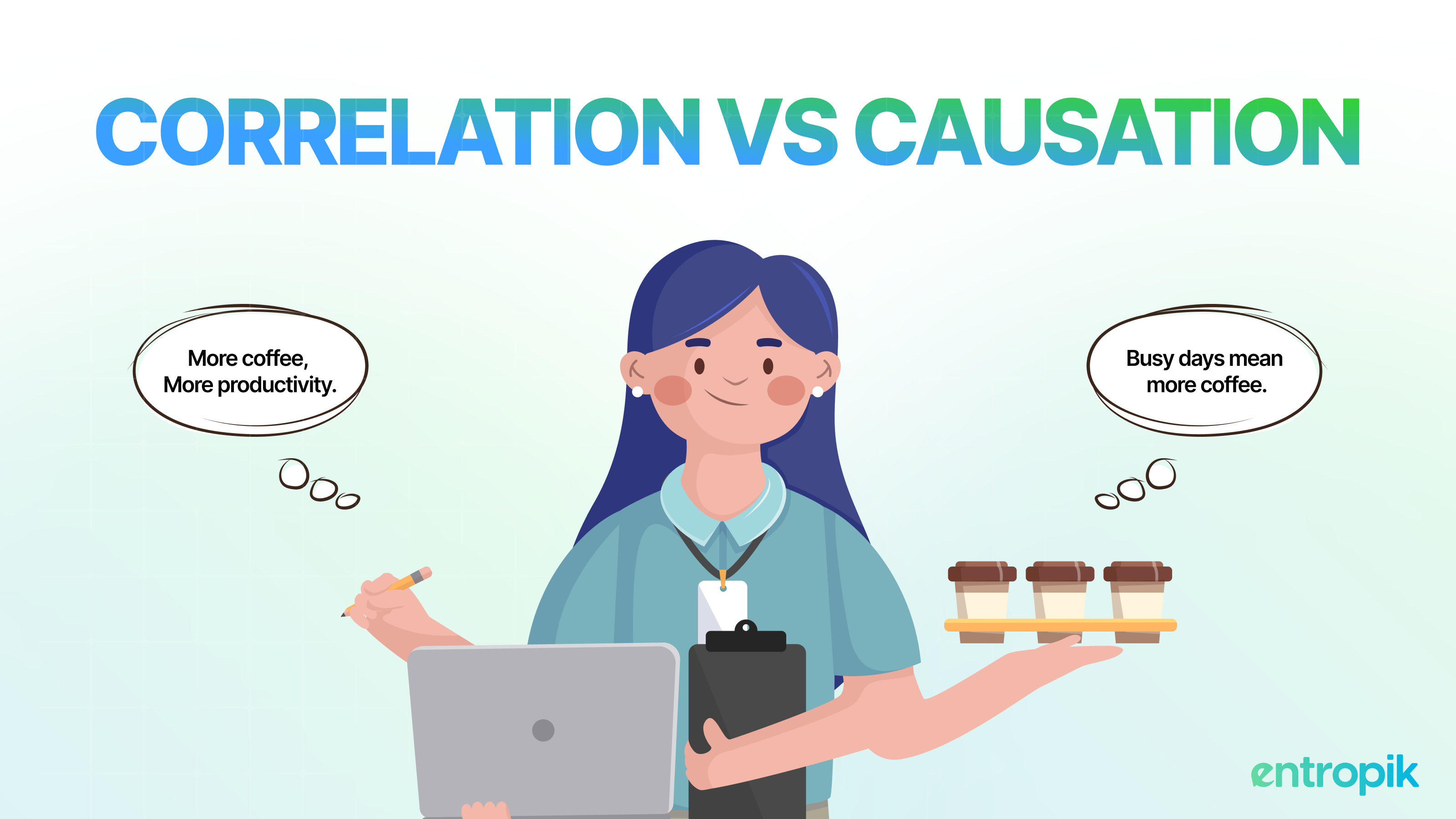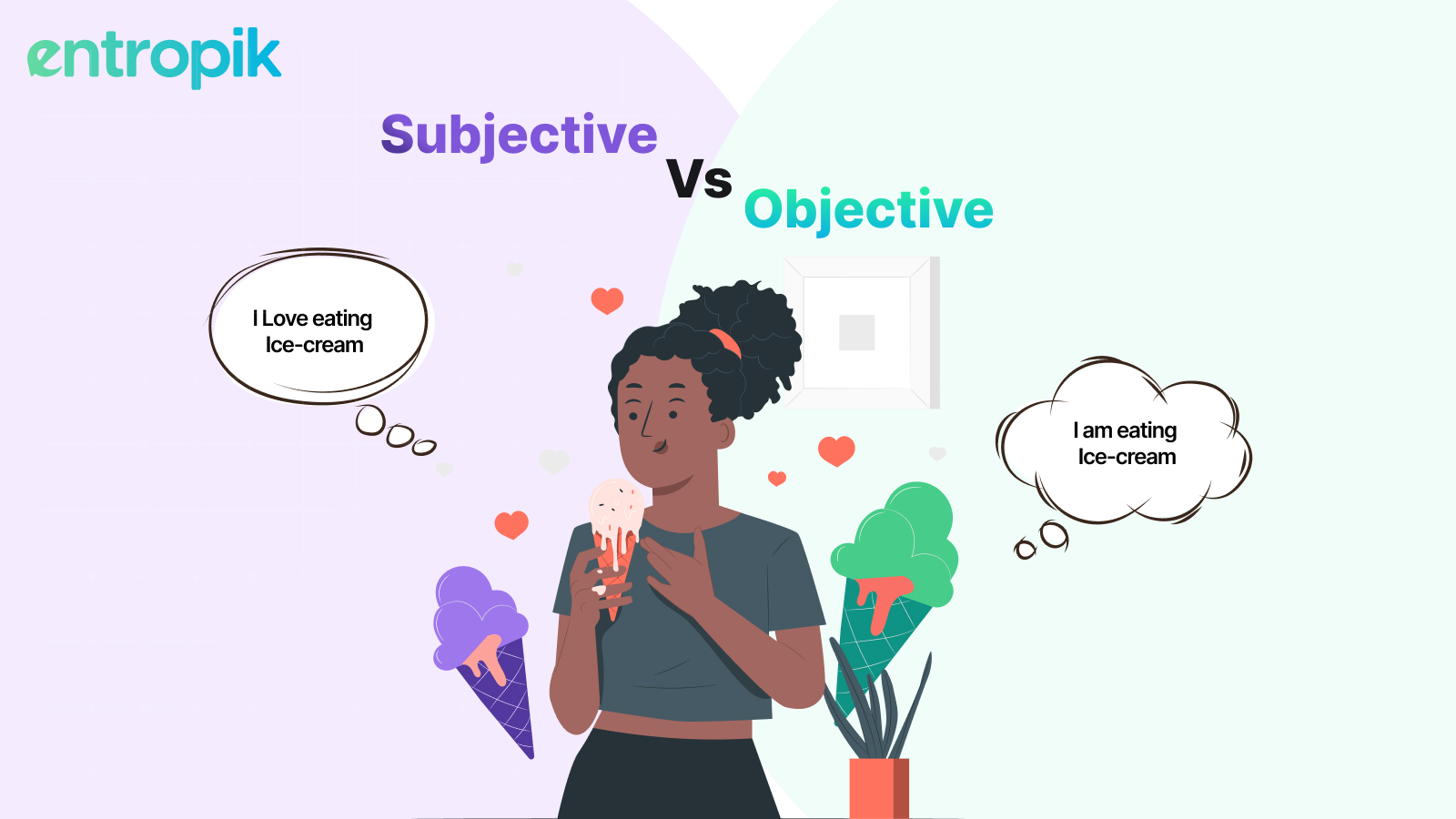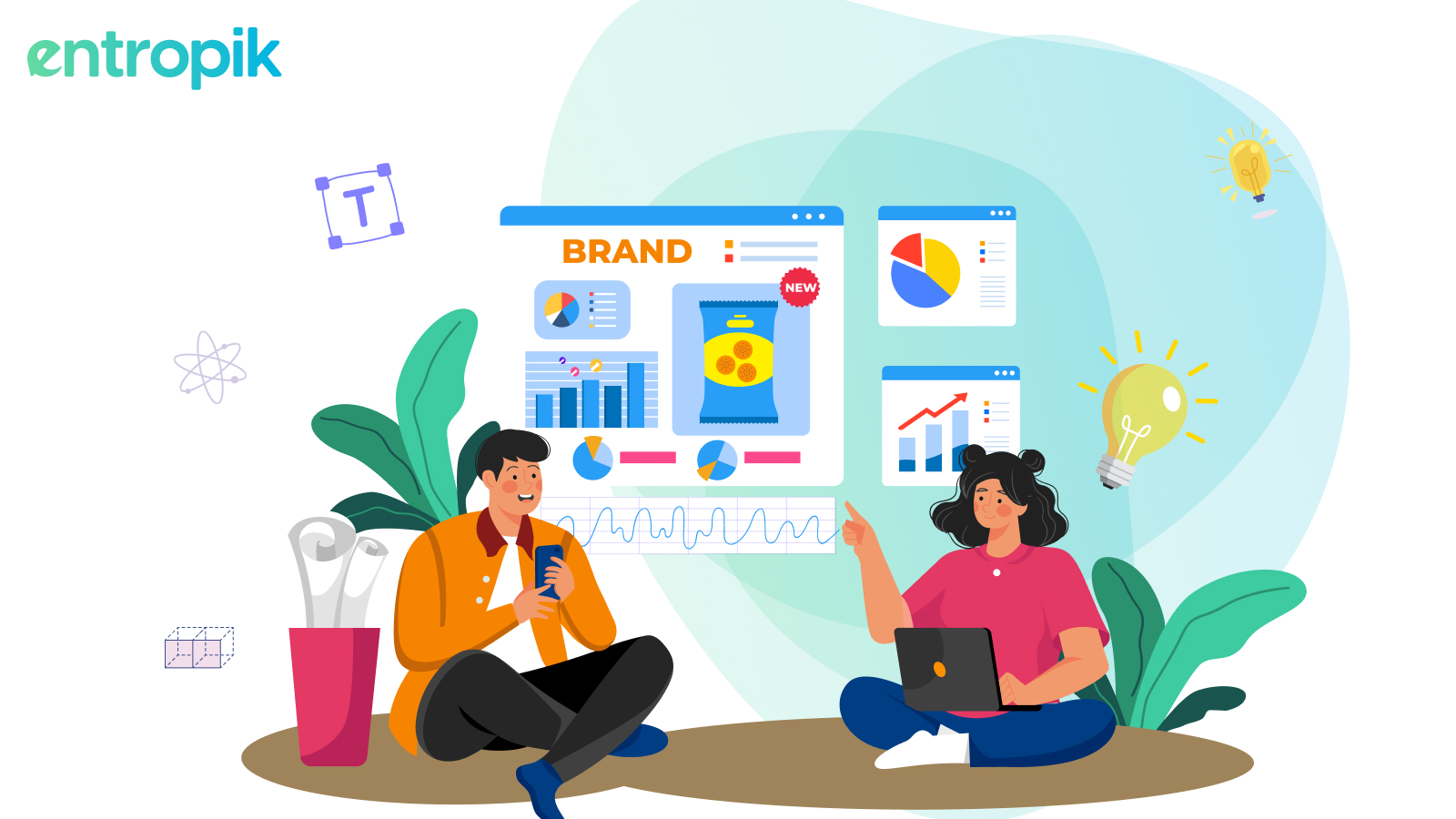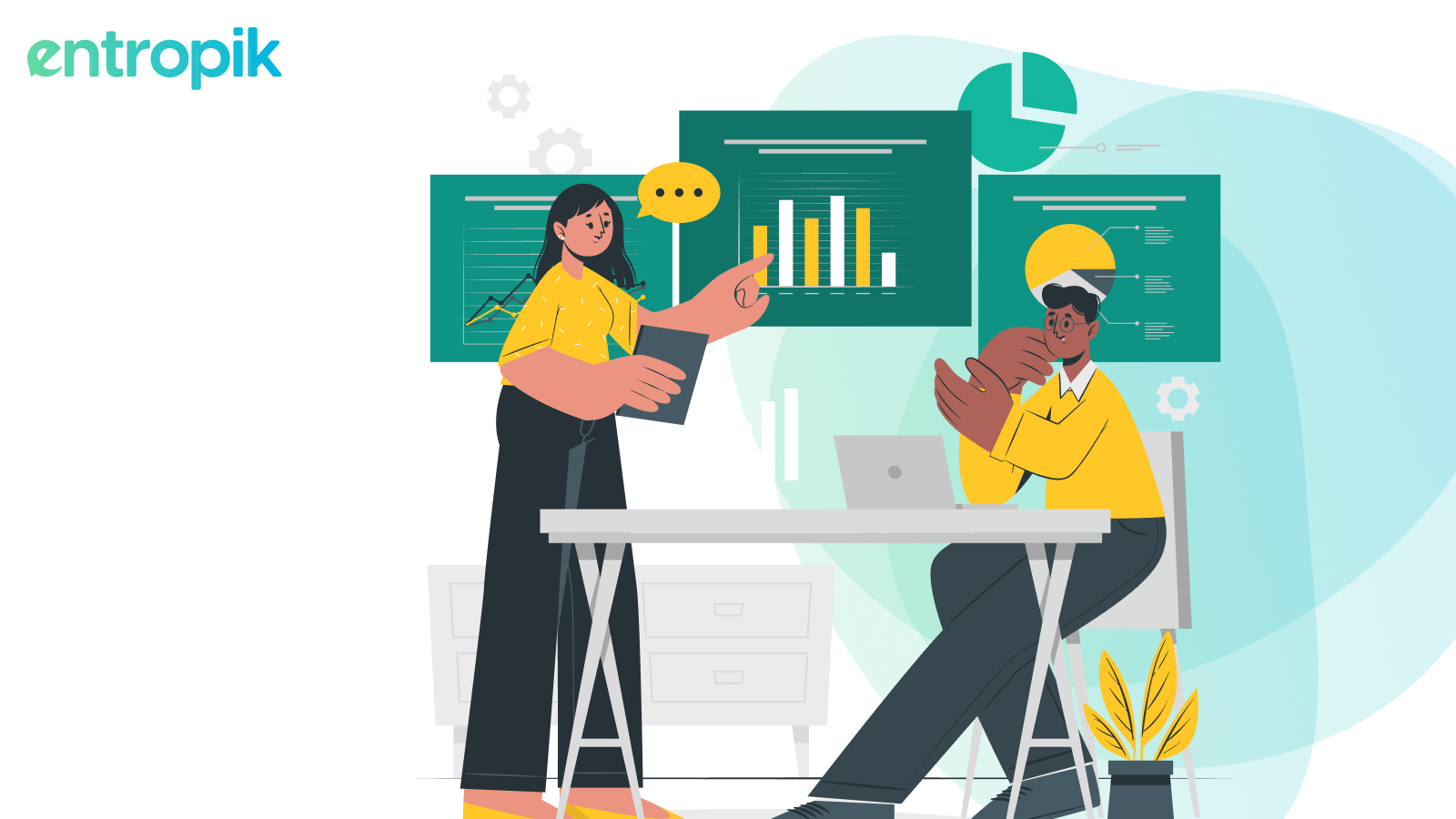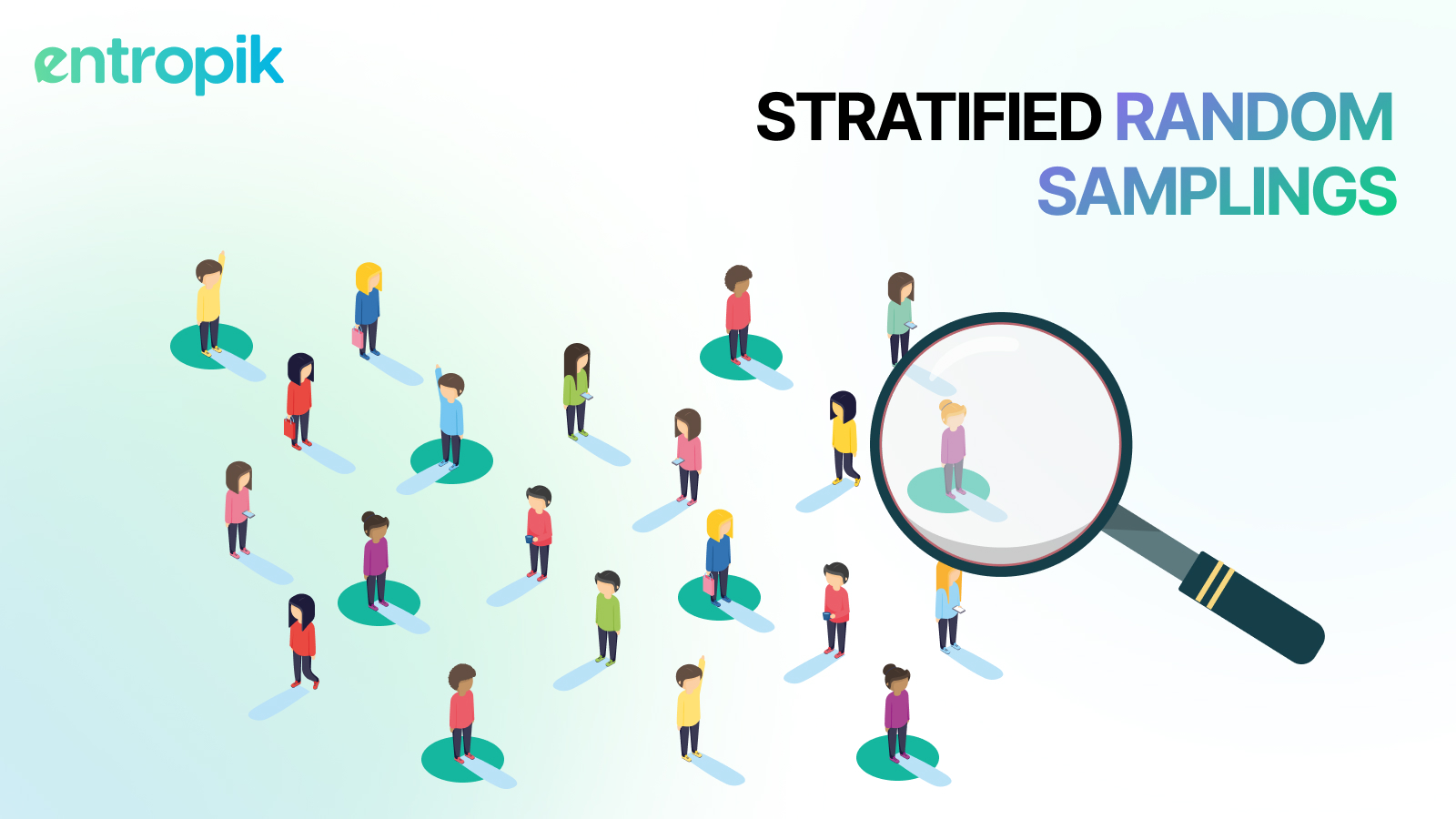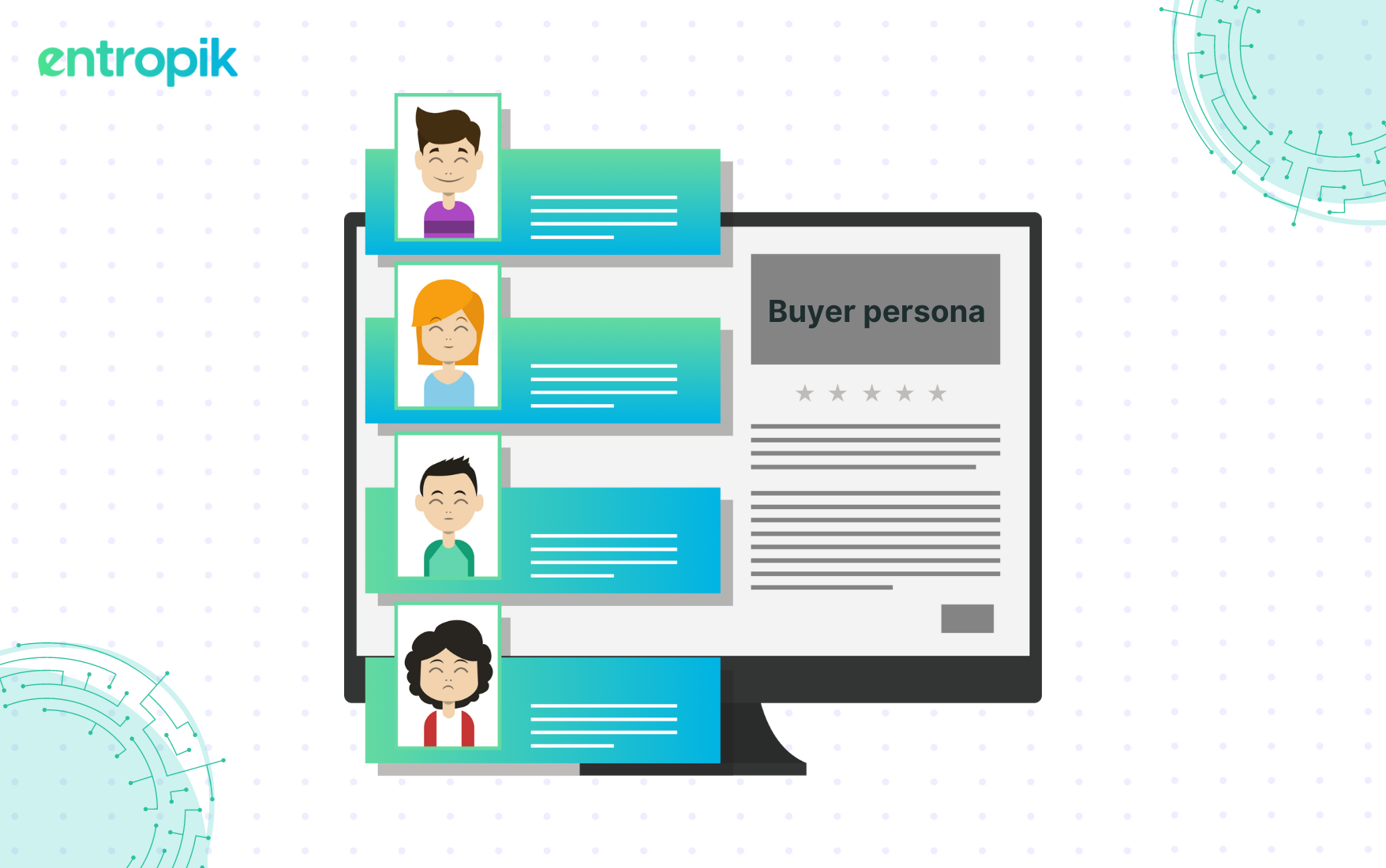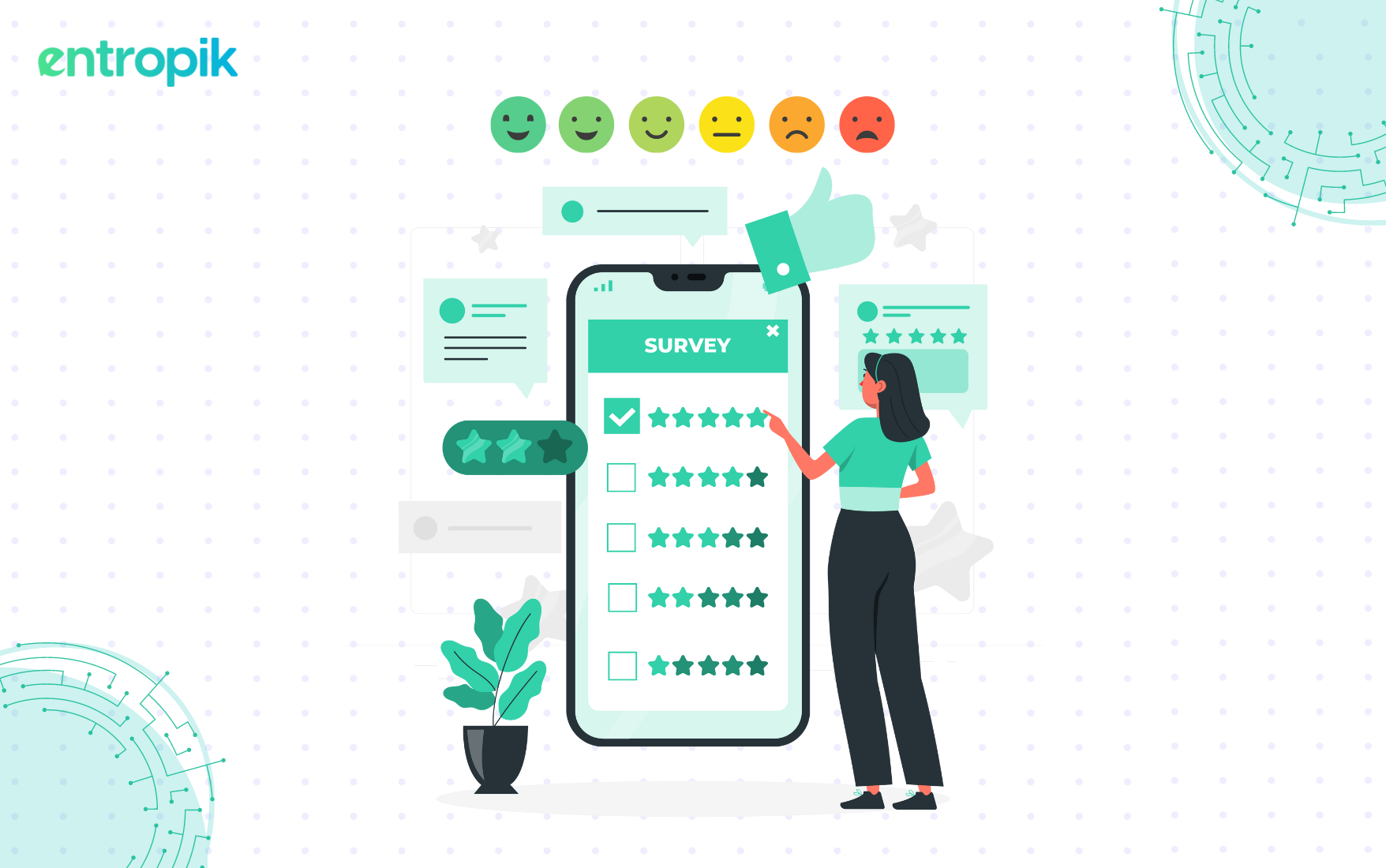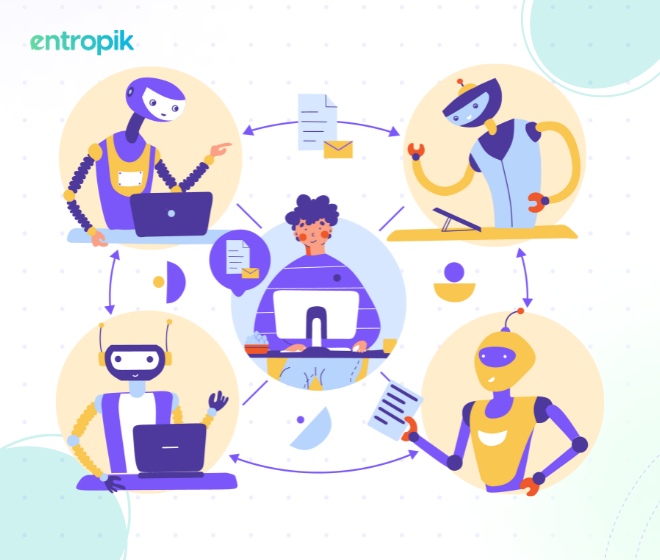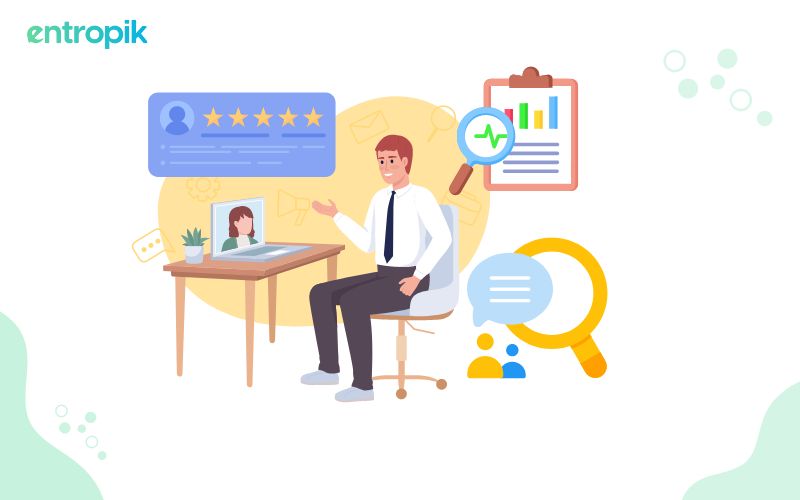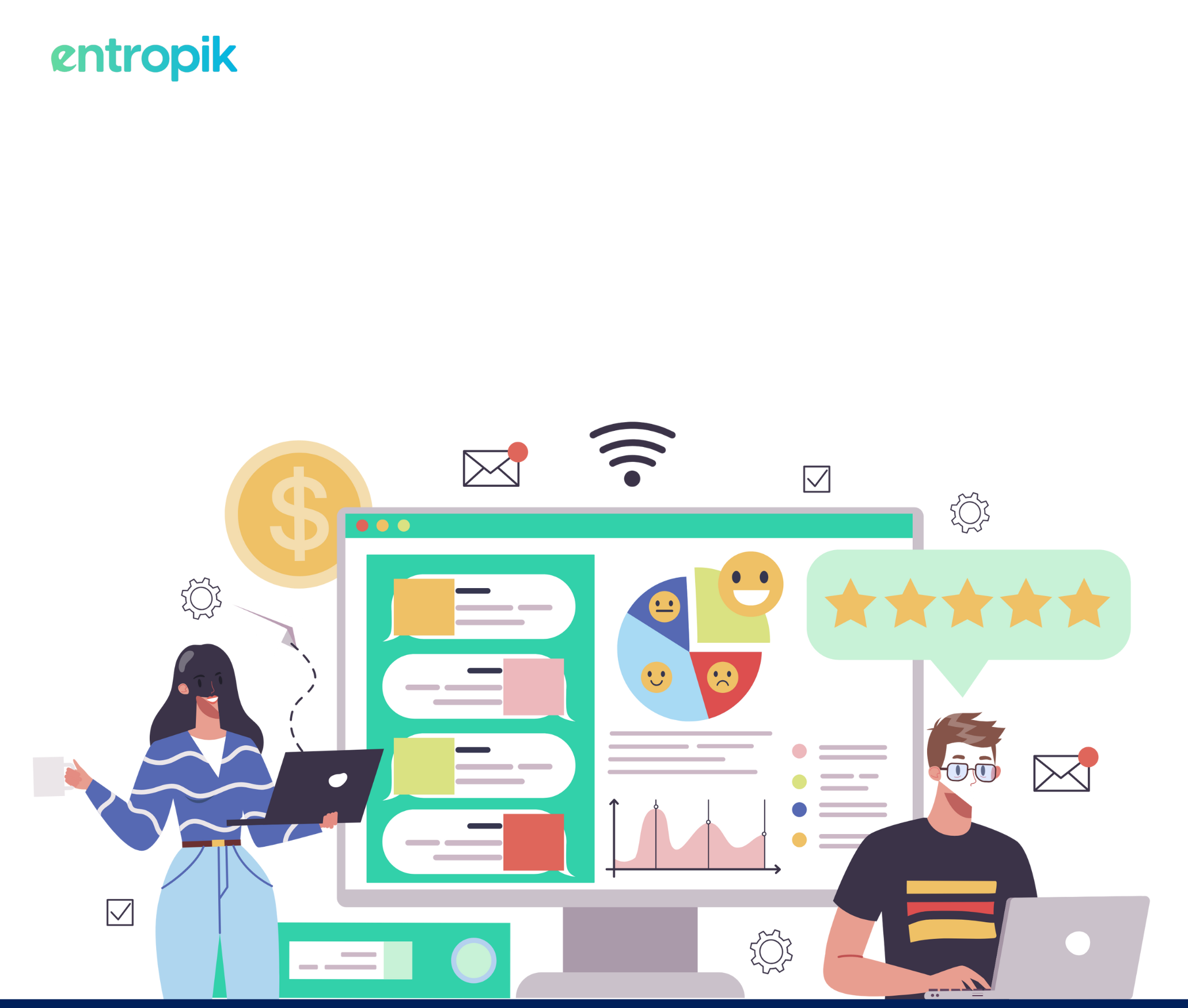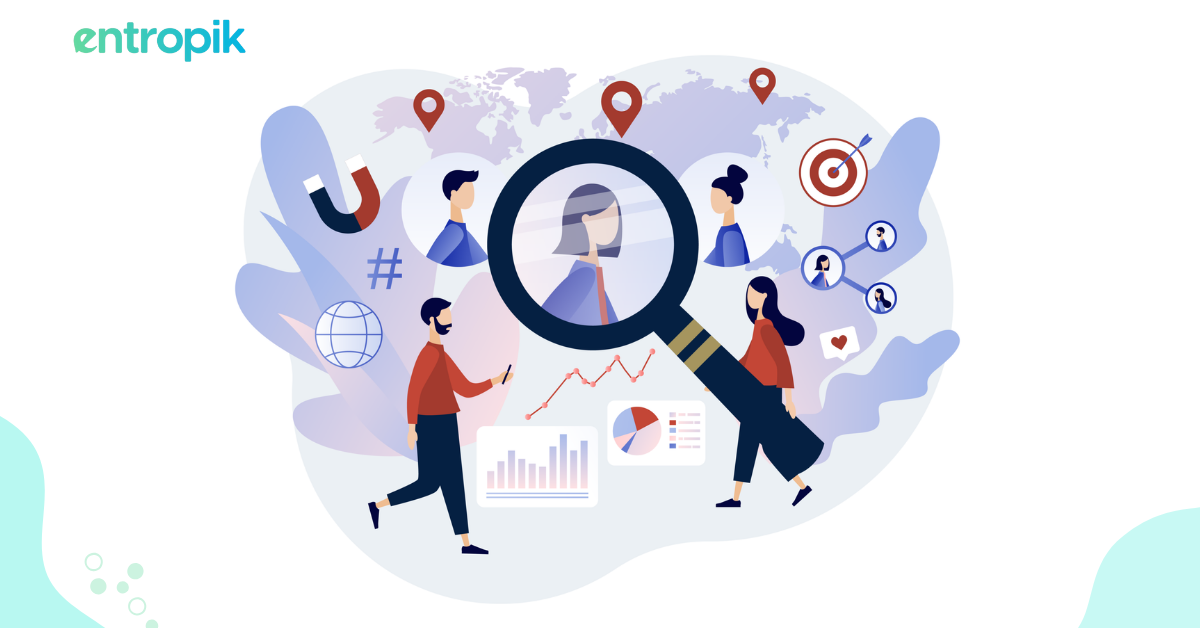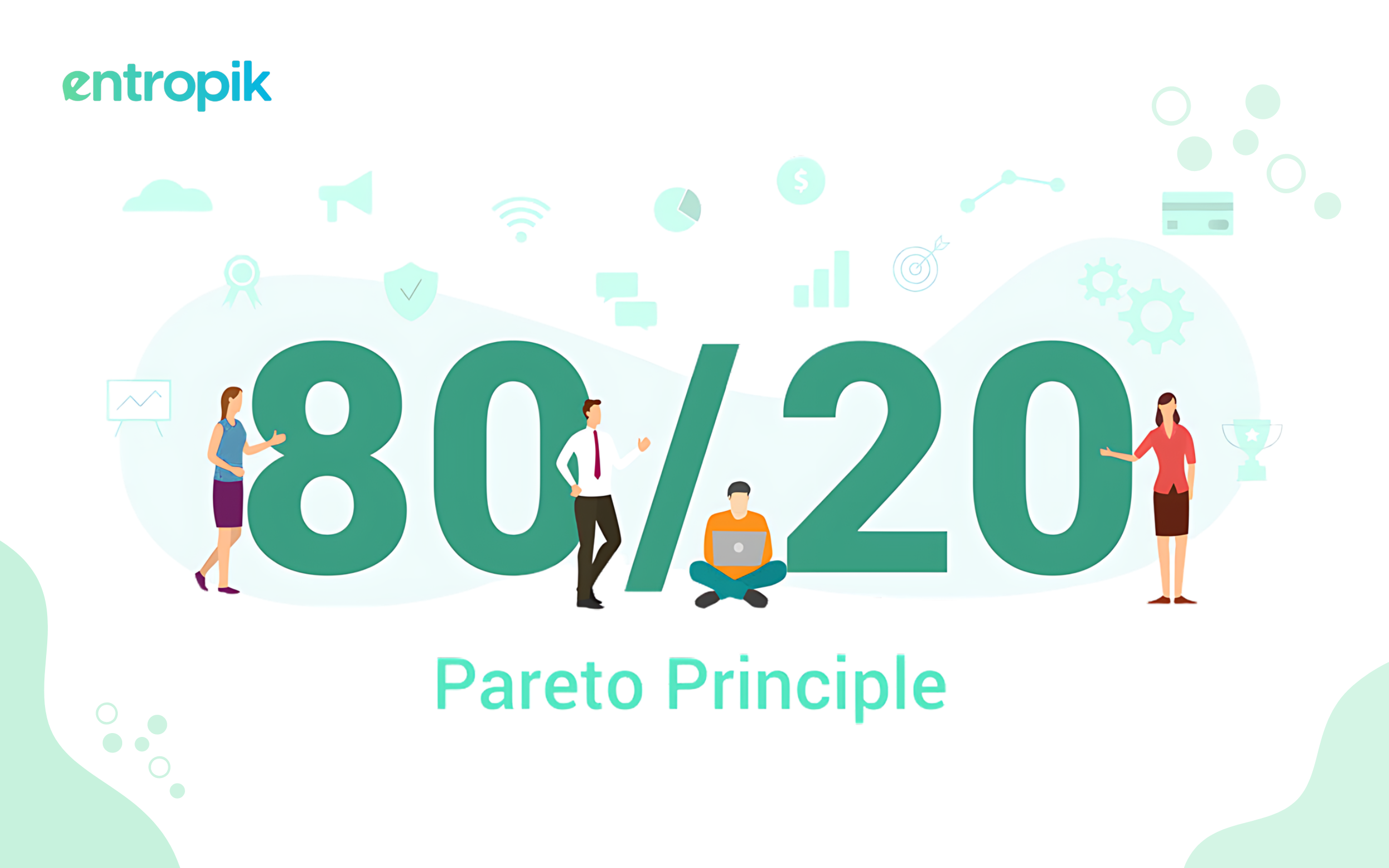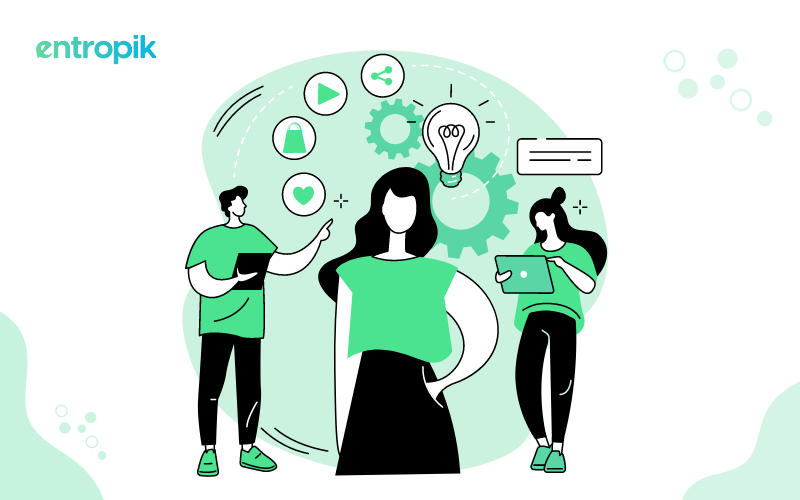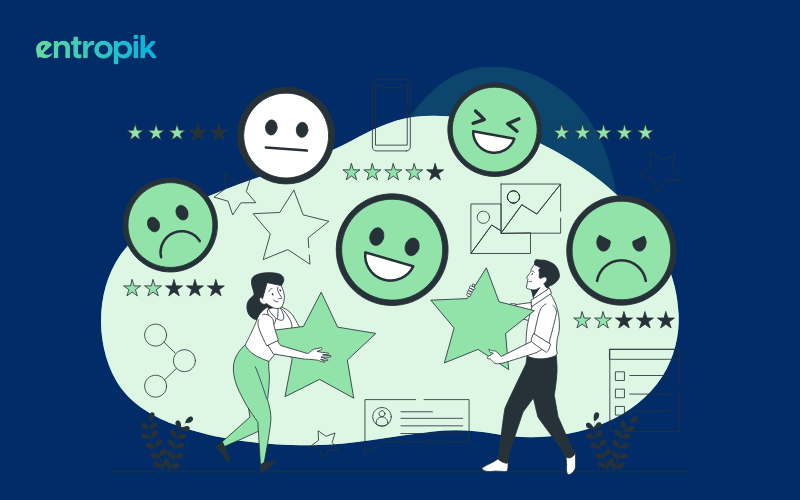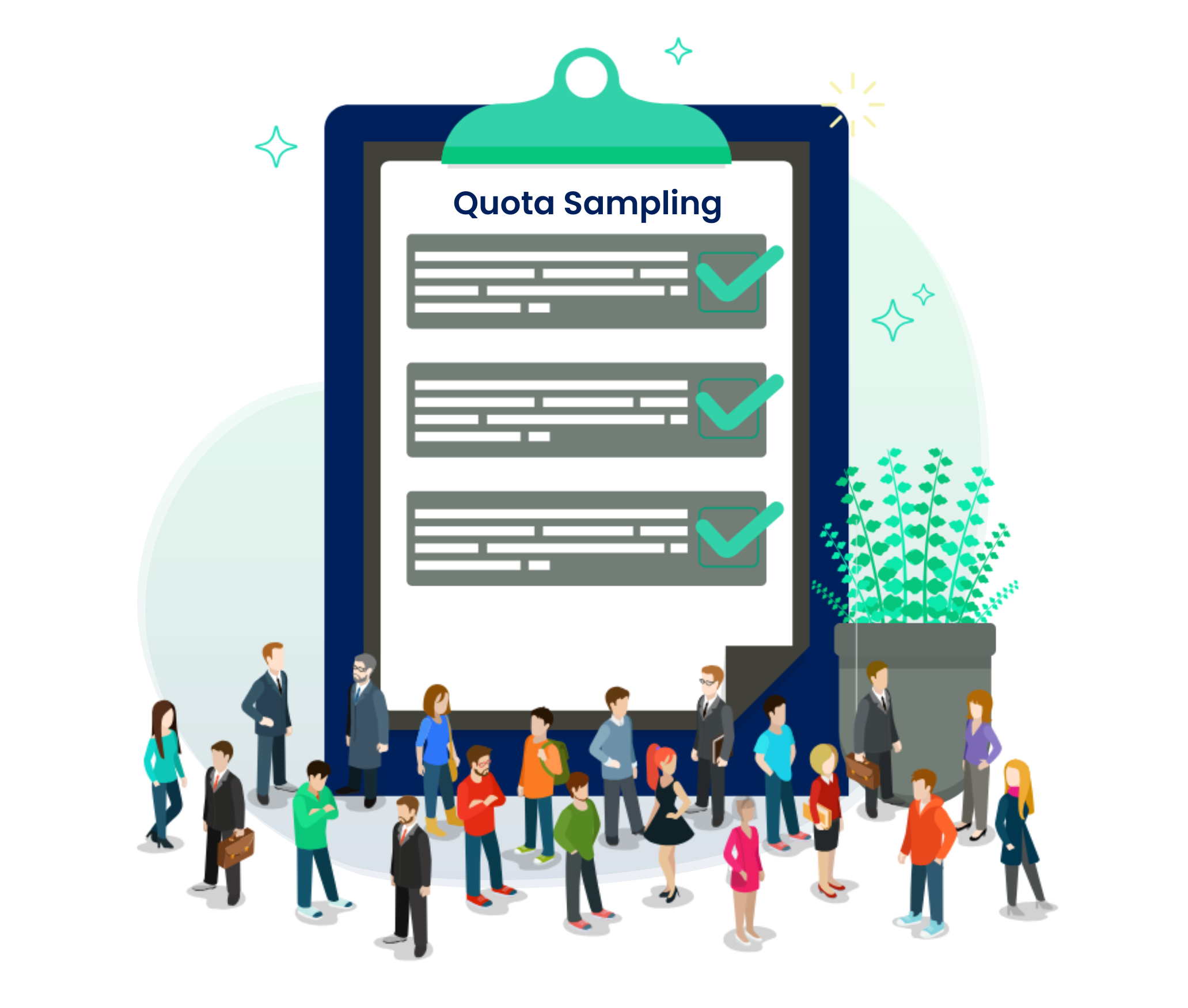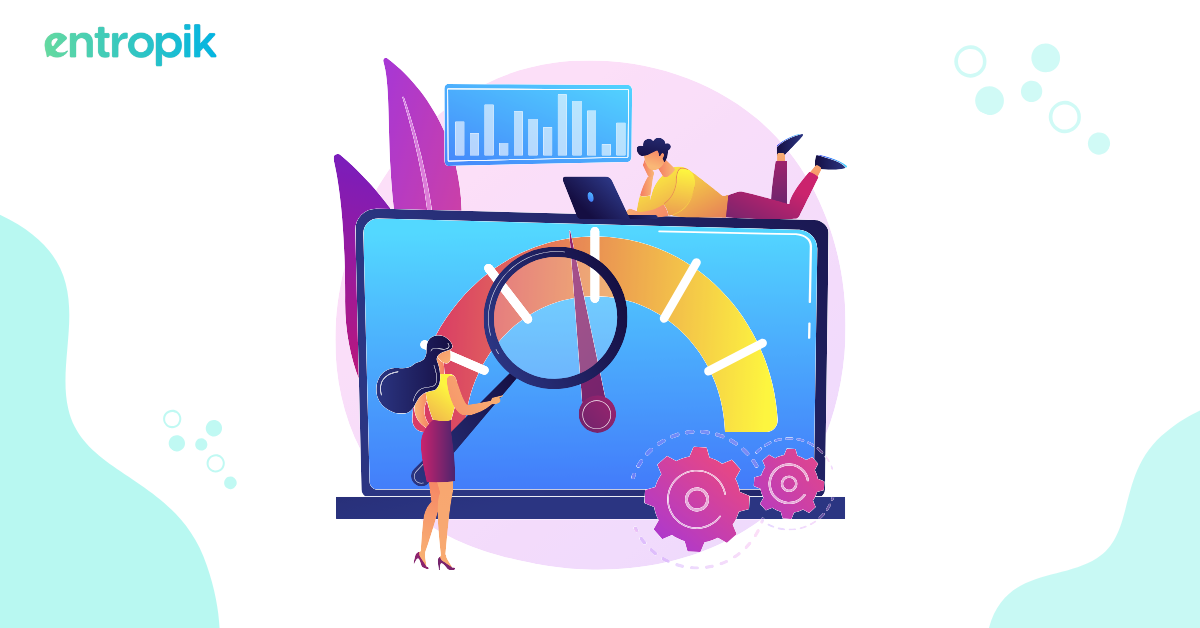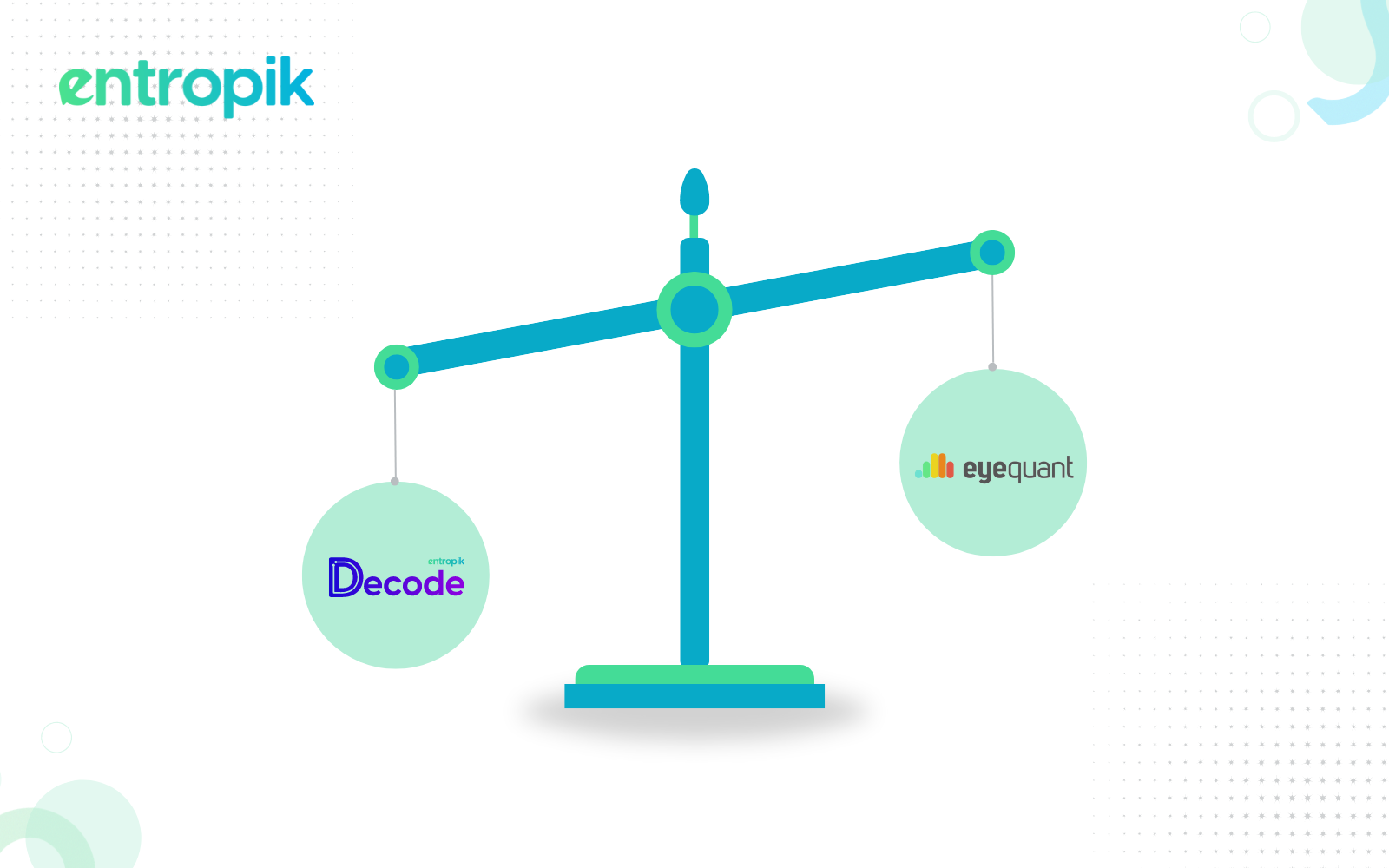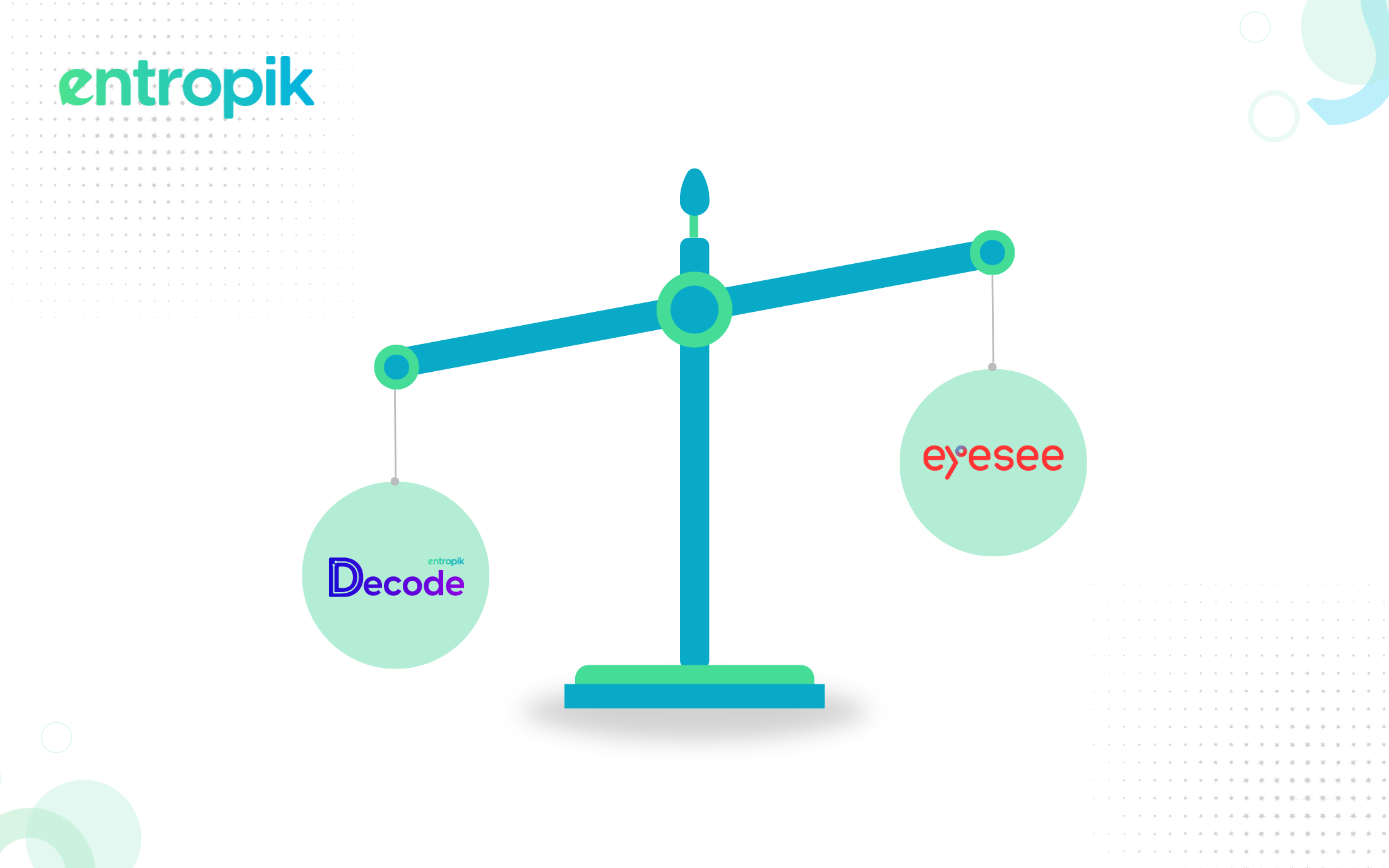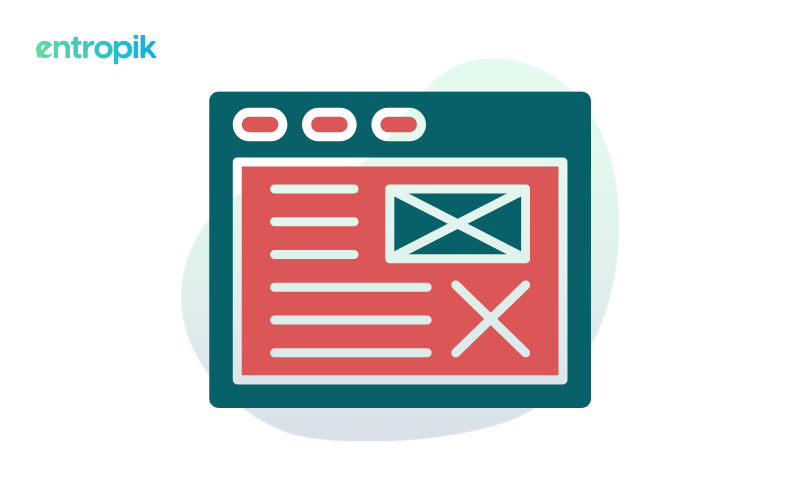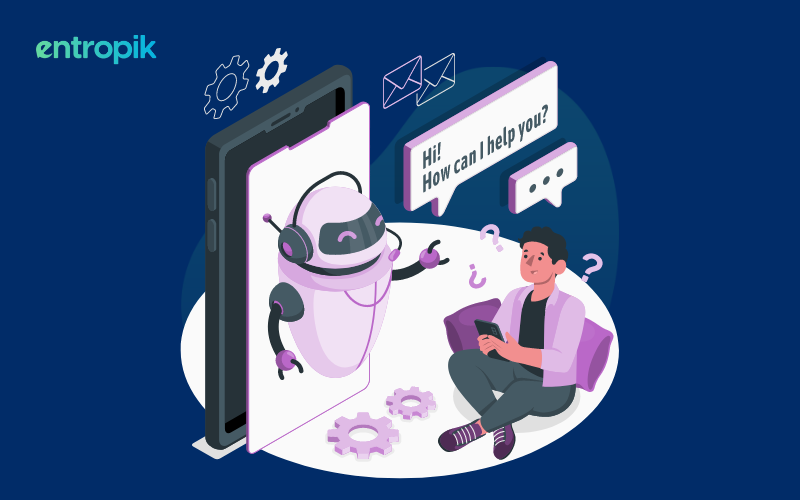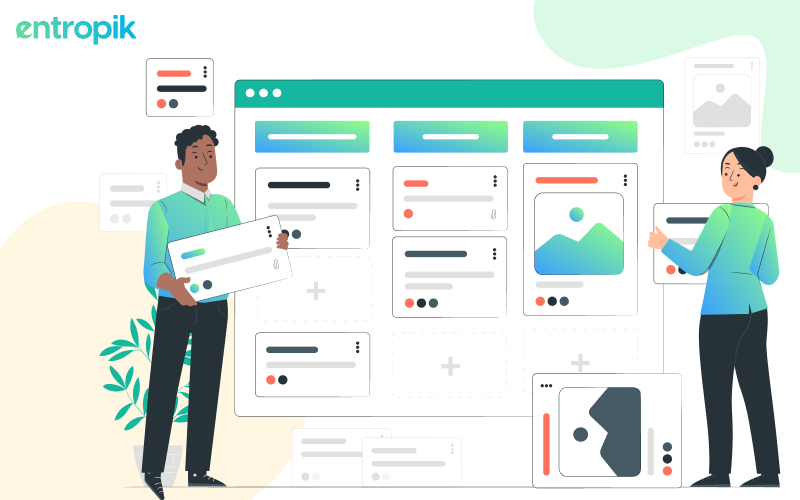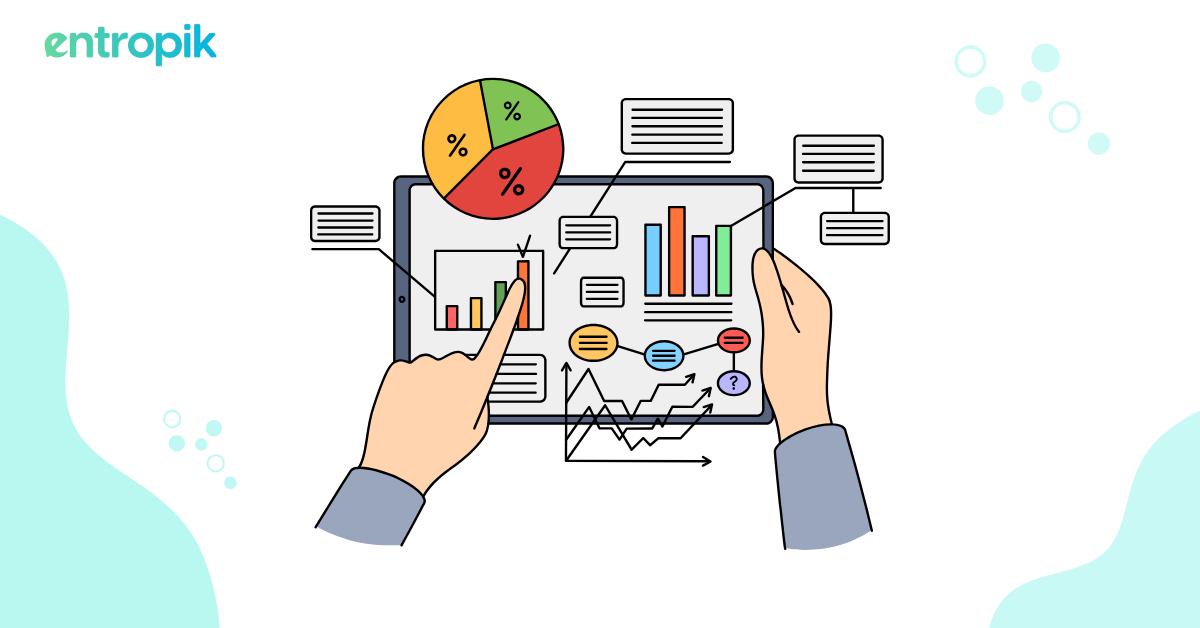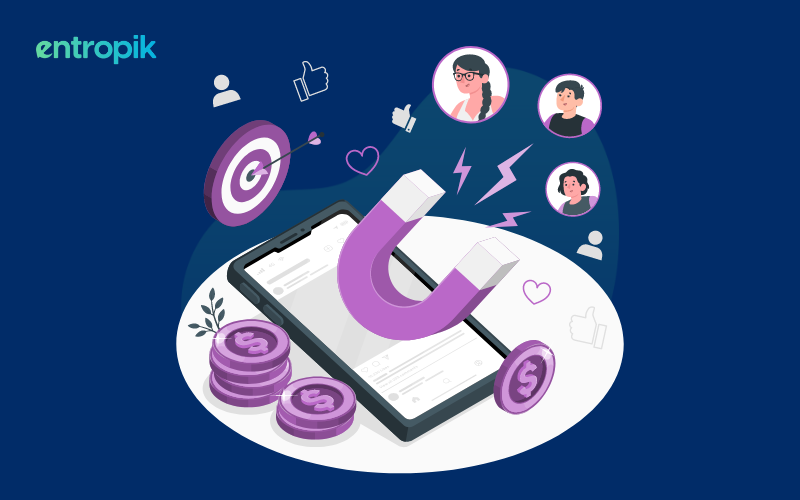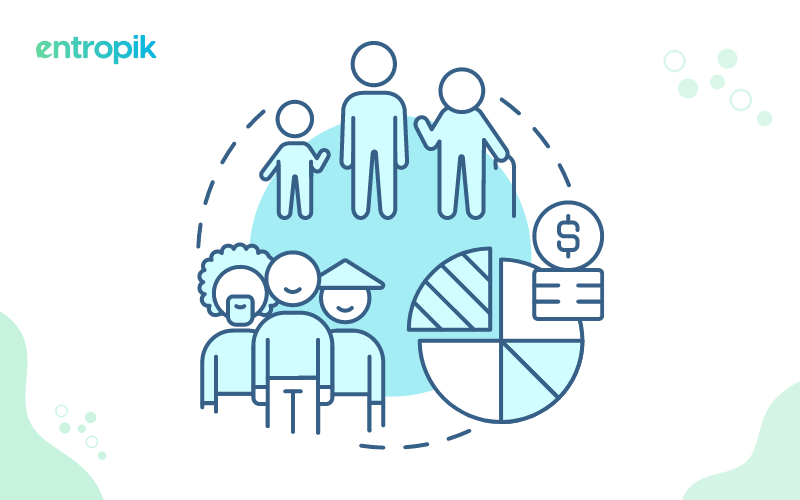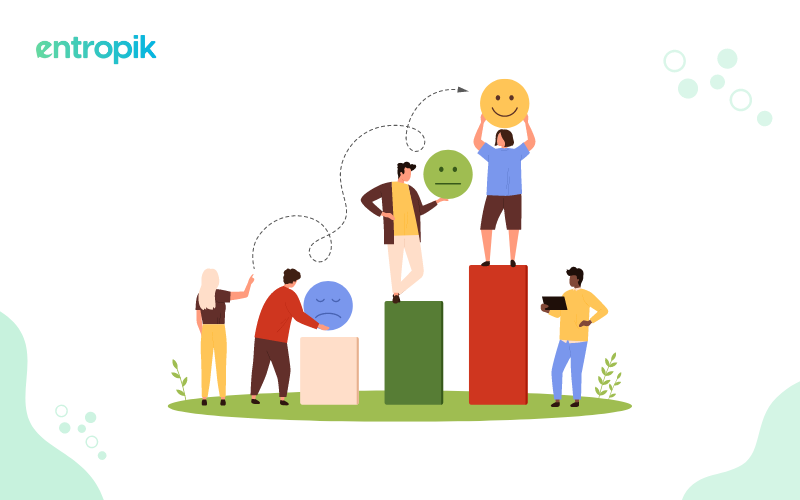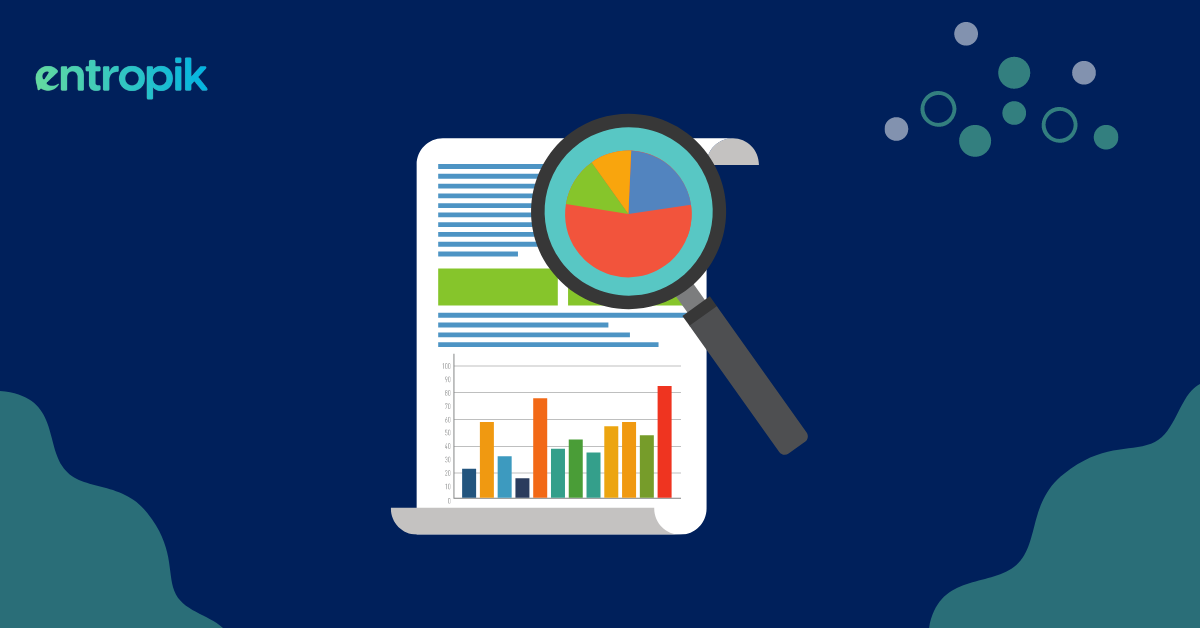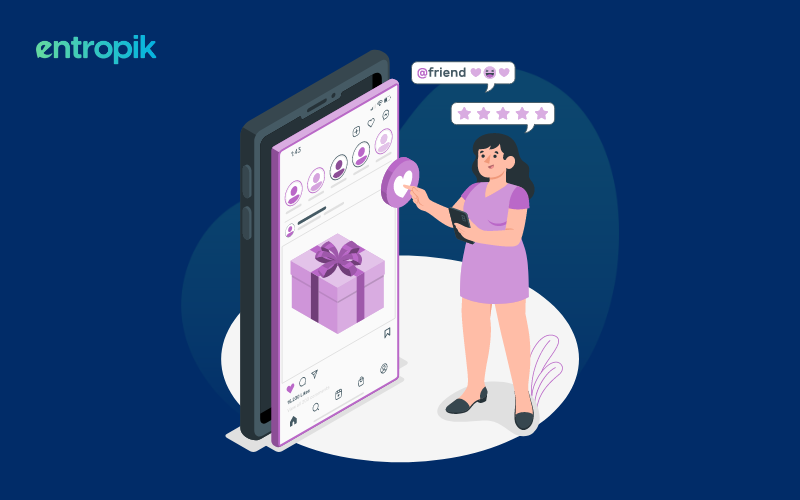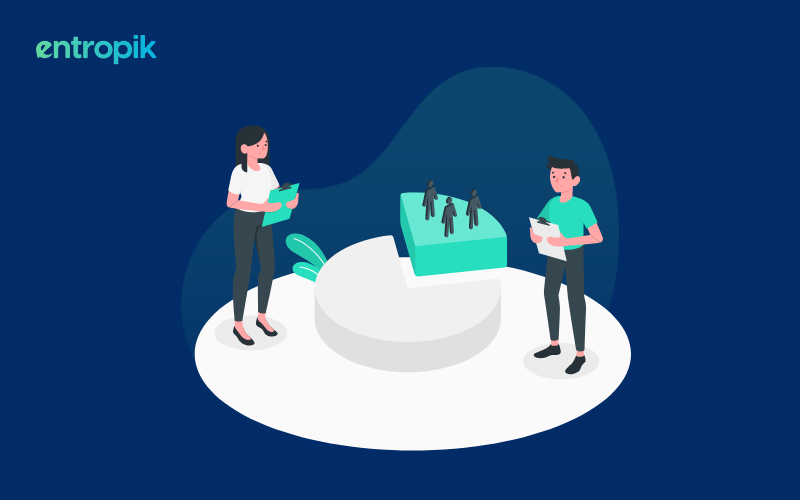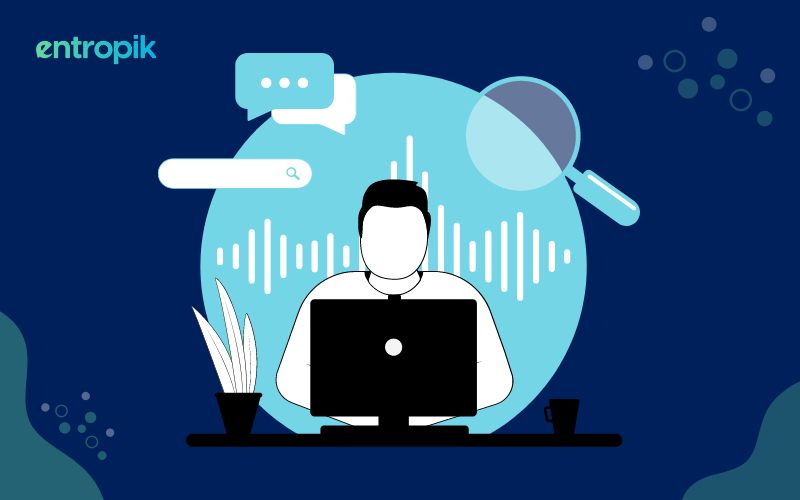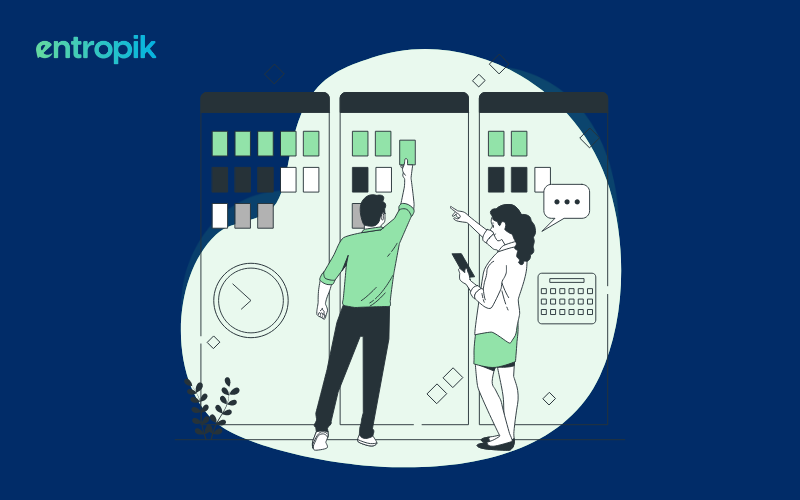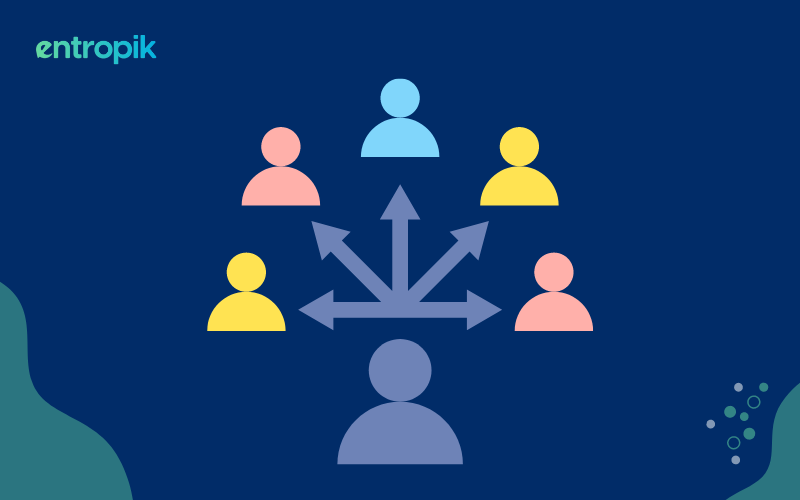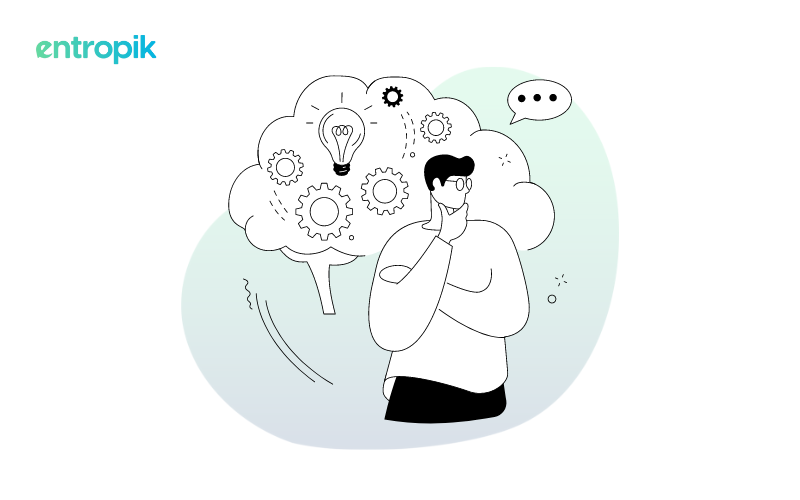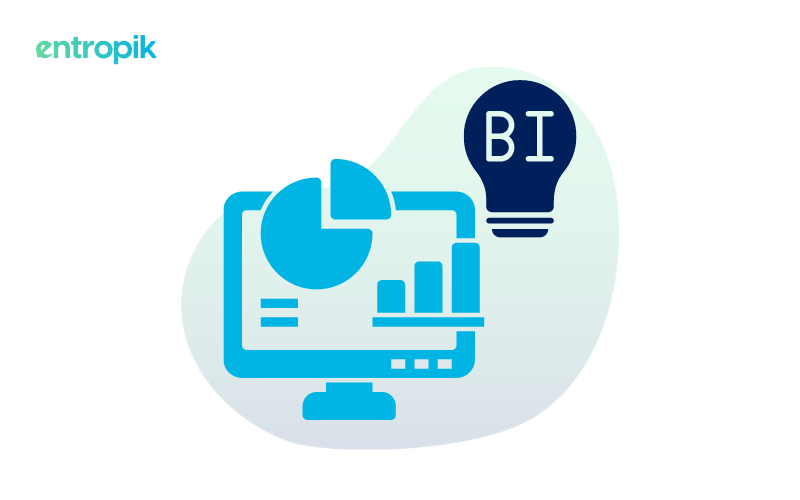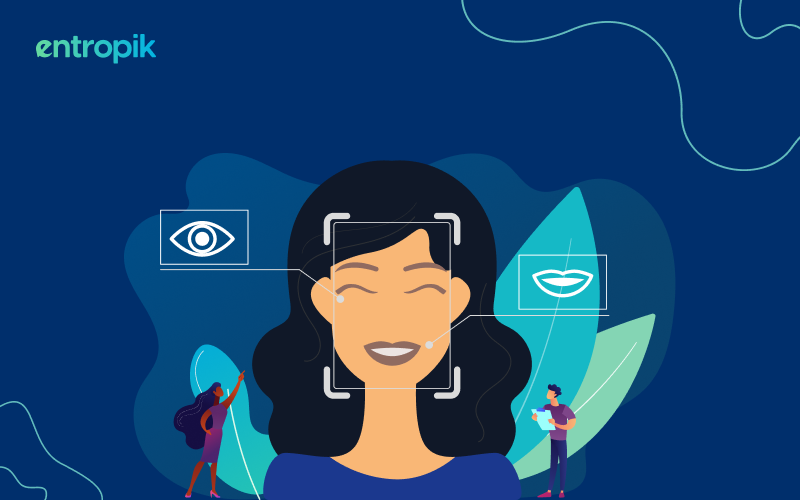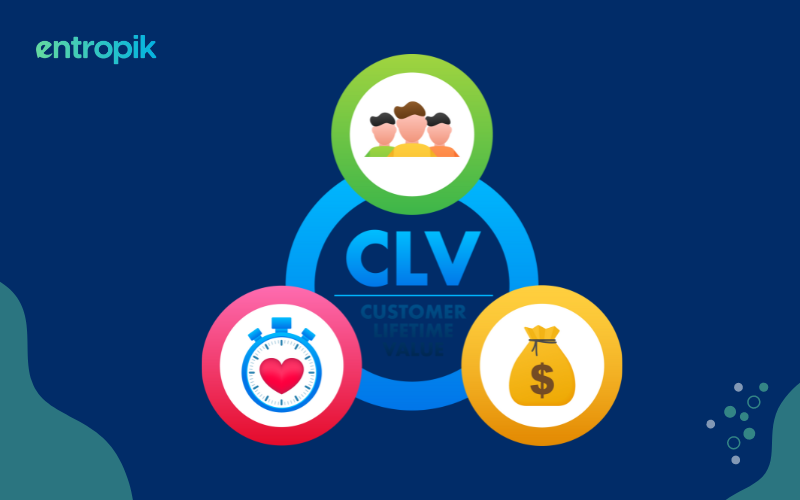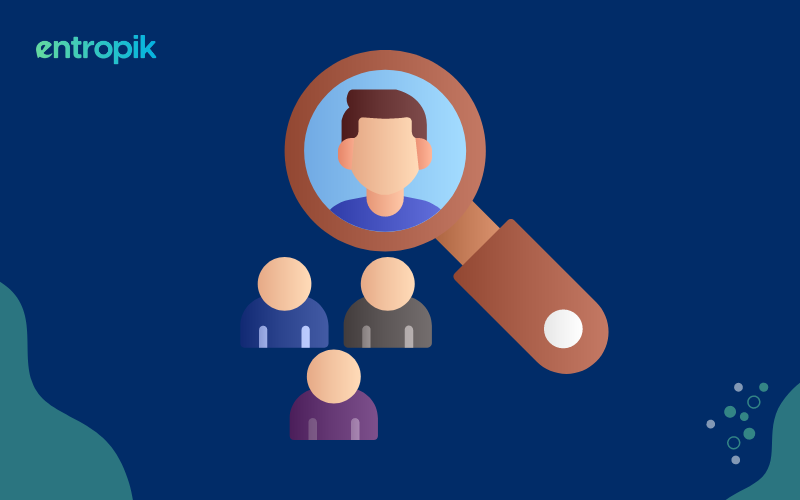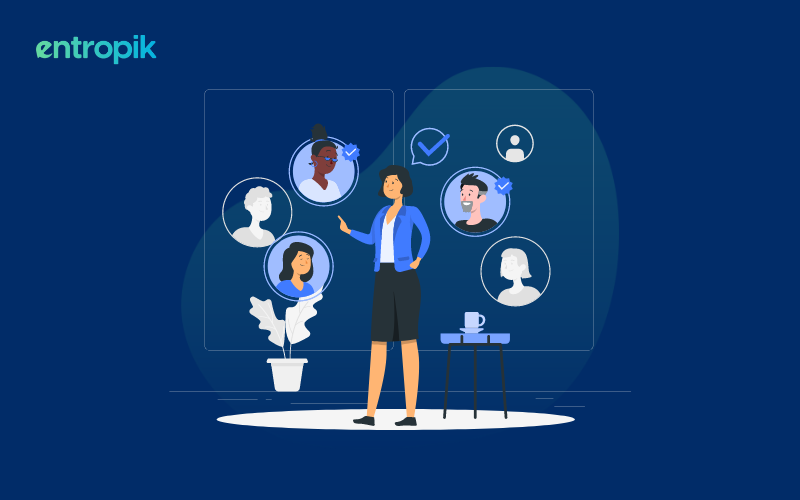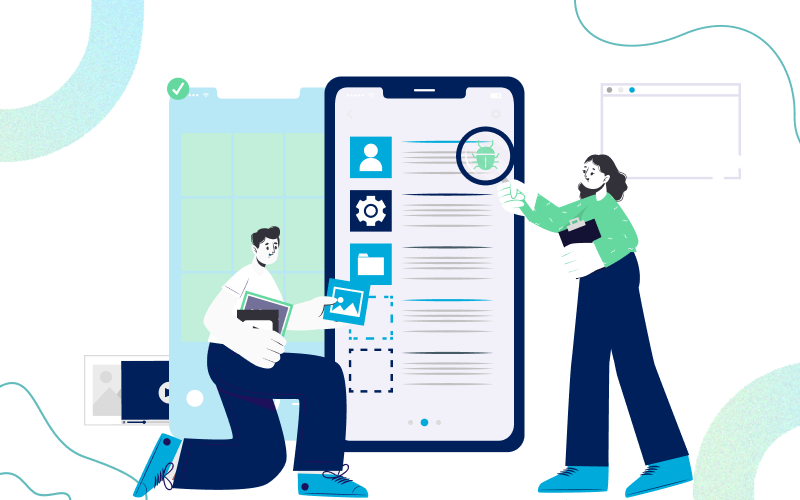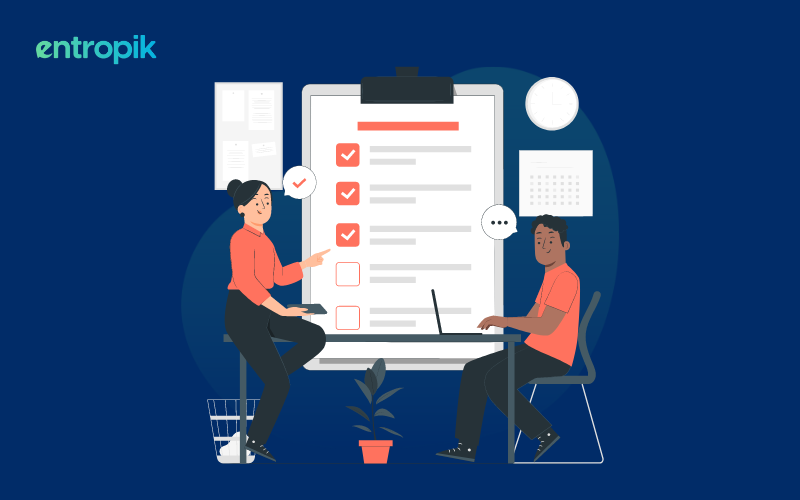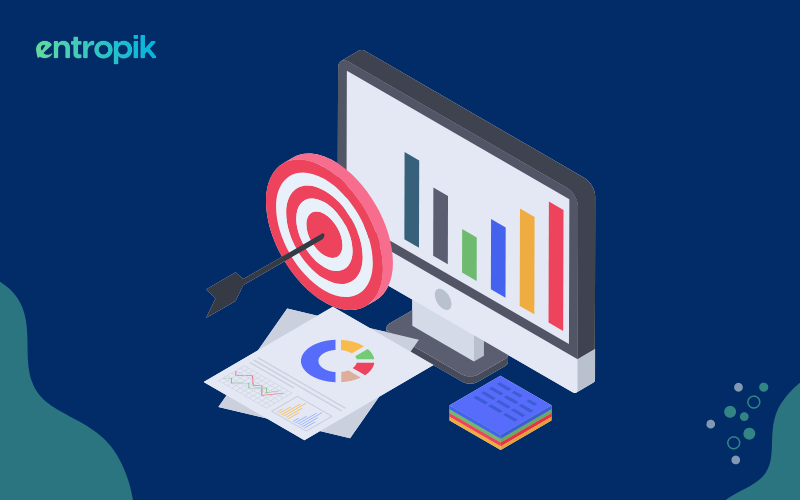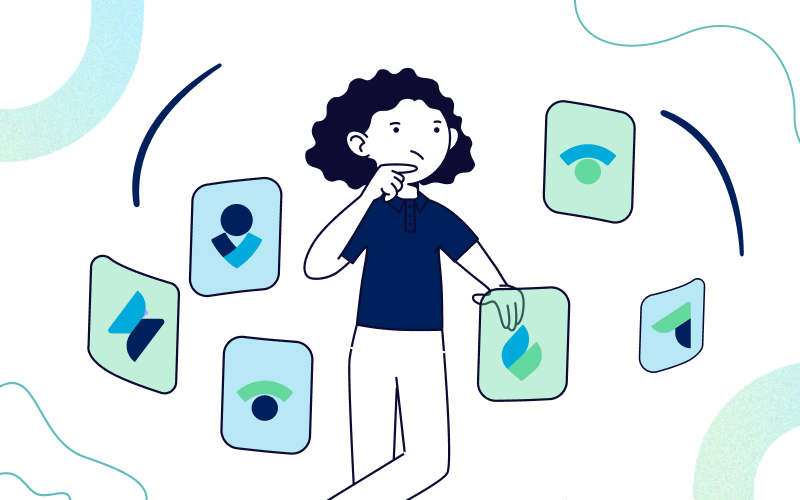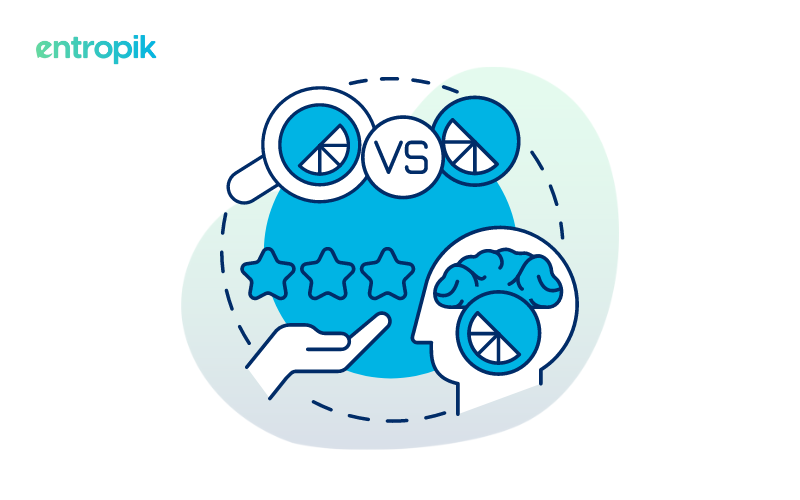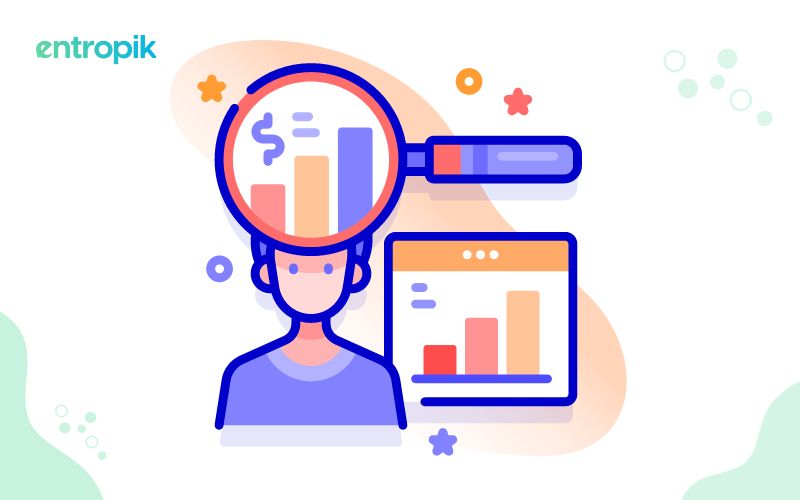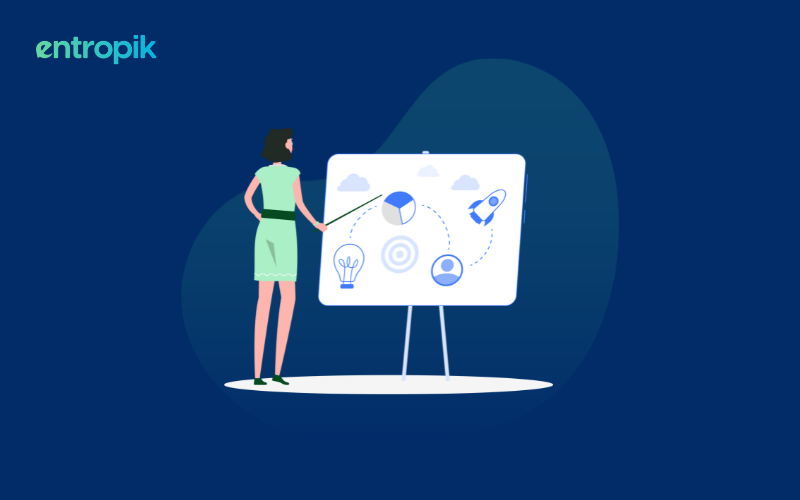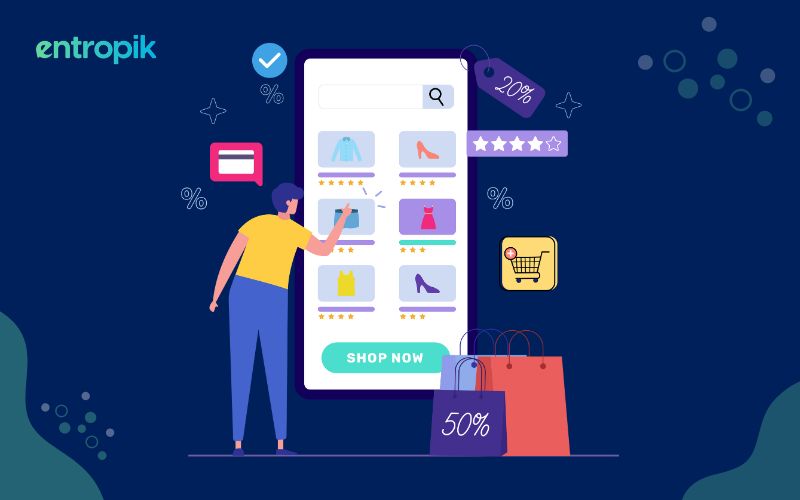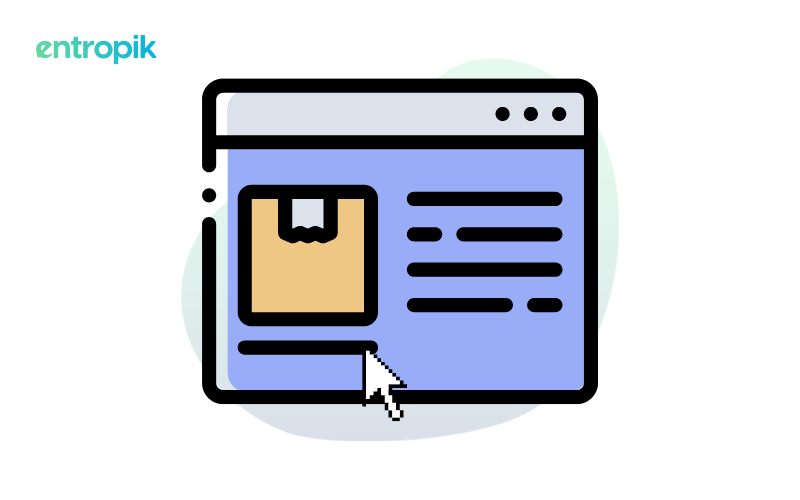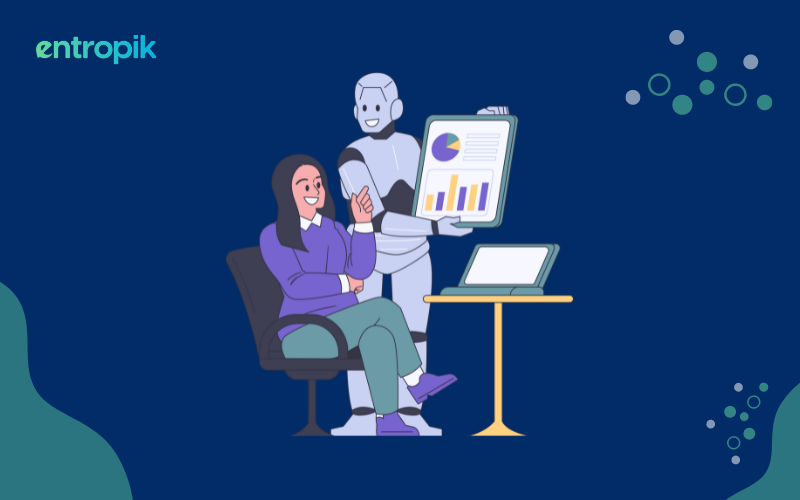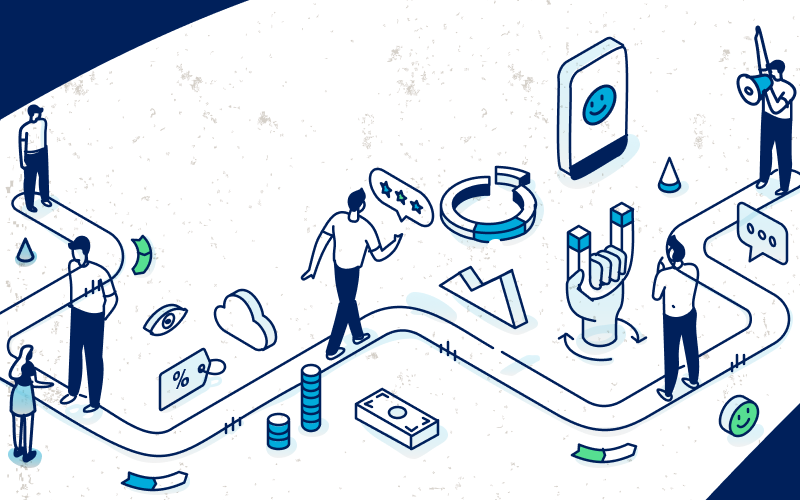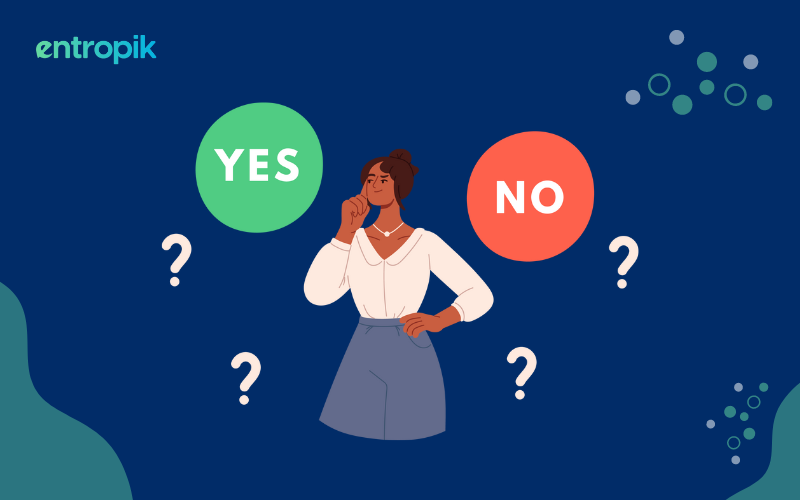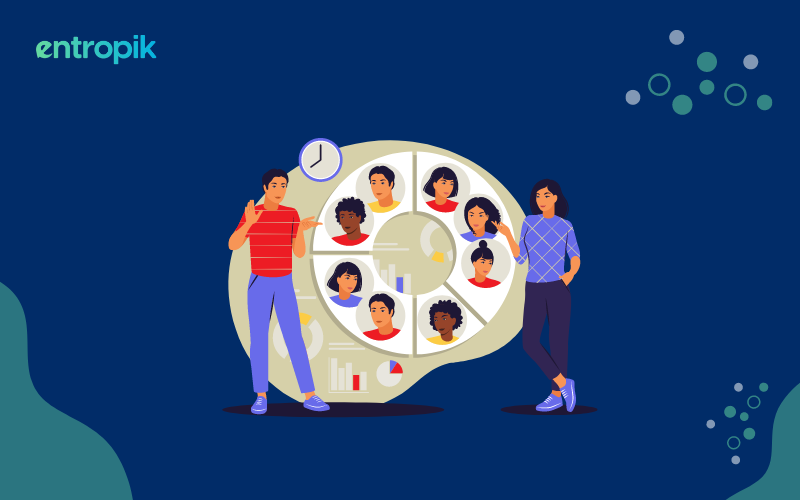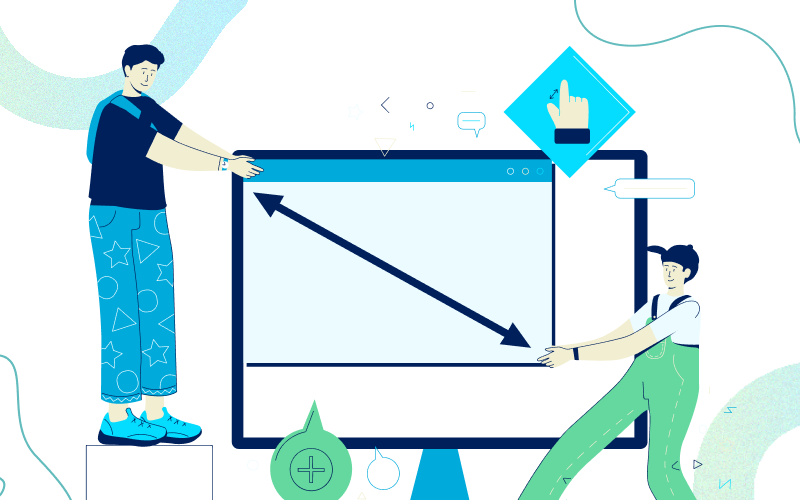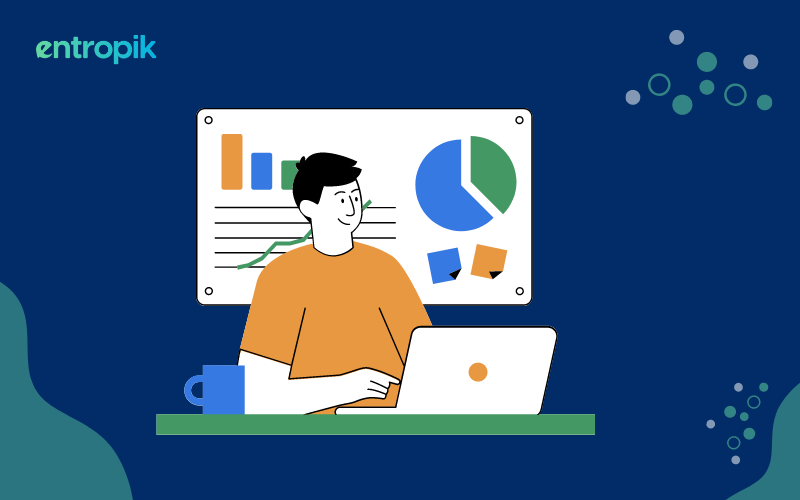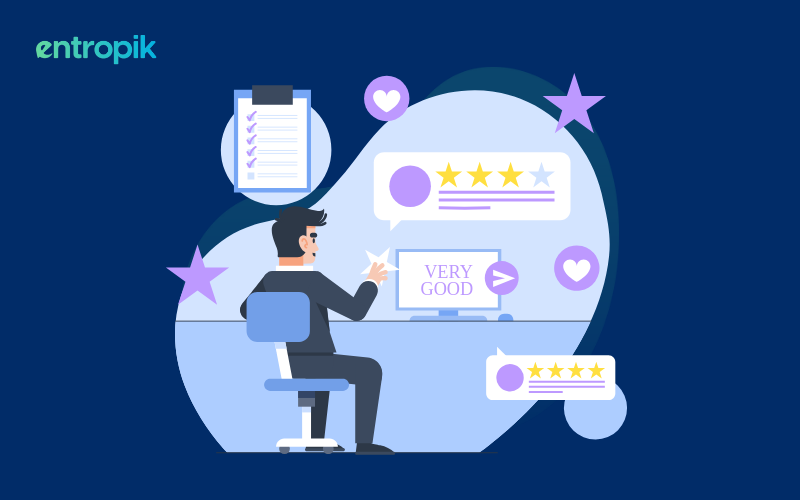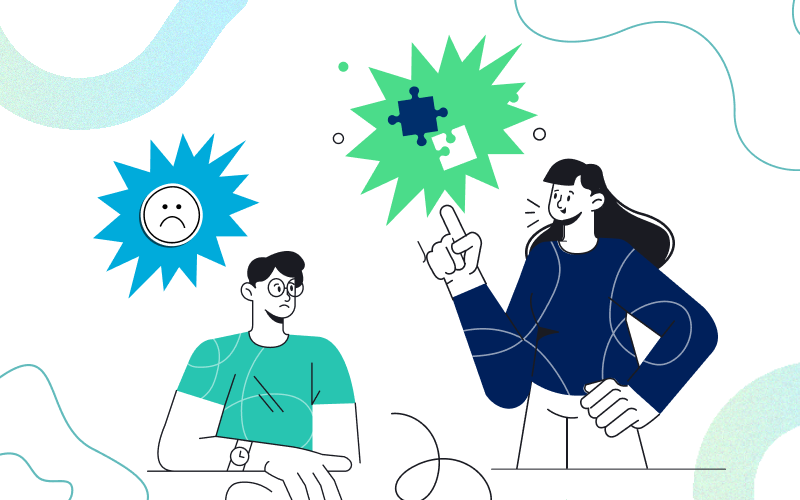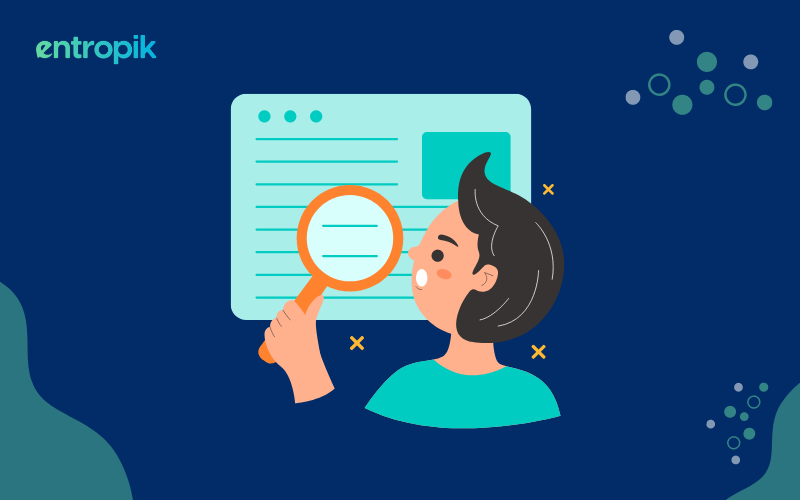Although "social listening," sometimes referred to as “social media listening,” might sound complex, it's becoming popular as marketers shift from old-school research to methods focusing on understanding consumers through social media.
According to Statista, the active social media users worldwide are 49.5 billion, which is 65.7% of the global population. An average user spends around 2½ hrs per day on social media platforms.
With more and more people using social media worldwide, marketers and researchers have much more data to work with, but
- What does all of this mean for businesses and marketers?
- How useful is social listening from a brand’s perspective?
- Are there any specific tricks or strategies to use?
In this article, we'll explain social listening and how it can make a big difference for your brand.
What is Social Listening?
The best answer to what is social media listening? - It is like monitoring online conversations about a brand, industry, or other important topics. It happens in real time, so businesses can keep up with fast-changing trends and respond quickly. It's great because it gives you unfiltered feedback from a bigger group of people without the influence of survey questions or group discussions.
Social listening also works well with traditional research. It lets businesses learn from what people say on social media, and they can do it much faster than conventional methods.
Social Listening Vs. Social Monitoring
To make it simple, let's forget the "social" part and think about the difference between monitoring and listening in a general way. Monitoring is like watching and keeping track of things over time, while listening is about hearing, understanding, and interpreting.
Now, by applying these ideas to social media, it’ll be easier to understand the difference between social monitoring and social listening.

Social monitoring is like keeping an eye on what's happening across different social media platforms. It helps companies spot trends, track their competitors, and understand what people are saying. You can do this by watching for mentions, comments, and hashtags.
Sometimes, people talk about a brand without directly tagging them. These indirect mentions won't notify the brand's social media profiles. Social monitoring tools can help you find these hidden mentions so your team knows what's being said online.
On the other hand, social media listening is broader. It's about not only watching when your brand is mentioned but also when it's talked about in different ways, even if it's not tagged. This can reveal insights about your competitors and other important keywords. After gathering this information, you can use it to make smart decisions.
Both your brand and your competition can provide helpful information through these conversations. Social listening helps you control your brand's image and learn what works or doesn't for your competitors.
For many businesses, starting with social monitoring is a good way to manage comments and keep an active online presence. Social listening takes it further by digging deeper into what people are saying.
How does social listening fit into market research?
Market research isn't just about gathering facts; it's also about knowing what people are talking about. The way we do market research has changed a lot from the days when researchers had to visit people in person. Social listening lets you see how your target audience behaves online and offline. It helps you understand what questions your audience has and how you can provide the best answers to their needs.
Social listening is about more than just keeping an eye on our competitors. There are three levels to it:
- Keeping an ear on what your competitors are doing
- Listening to what your customers are saying
- Staying informed about what's happening in the world.
For primary research, companies can use social listening to collect honest feedback from users. They set up a system to watch conversations related to a problem in the market. They gather this information and study it to figure out why these issues are happening. This information shows patterns and helps companies understand why problems are occurring and what they should do about it.
As a result, companies can make better decisions by responding effectively to what customers say. For example, they can use unsolicited customer complaints and suggestions to improve their products or give quick, accurate information. Social listening is also super helpful in doing more in-depth market research.
Why is Social Listening Important in Market Research?
Social listening holds utmost importance in market research by providing unparalleled insights into consumer sentiments, preferences, and trends in real time. In the contemporary landscape where billions of individuals actively engage on social media platforms, this practice becomes a direct window into the collective thoughts and opinions of a diverse audience. Unlike conventional research methods, social listening enables businesses to capture unfiltered feedback on their brand, products, and services, without the influence of structured surveys or group discussions. It serves as a dynamic tool for understanding customer needs and behaviors, allowing companies to stay agile and responsive in an ever-evolving market.
Moreover, social listening empowers businesses to keep a vigilant eye on their competitors and industry trends. By actively monitoring and interpreting online conversations, companies gain valuable insights into the strategies and activities of competitors, helping them refine their own approaches and identify opportunities for improvement. This real-time awareness not only fosters better customer relationships but also guides intelligent business decisions. The ability to respond promptly to emerging issues and capitalize on market trends positions social listening as an indispensable component of any robust market research strategy, ensuring that businesses remain adaptive, informed, and competitive in the dynamic digital landscape.
What are the benefits of Social Listening?
Social listening is like eavesdropping on what people are saying about your brand and what they expect from it. Here's how it helps your brand:

Builds better customer relationships
By listening to what your customers are talking about, you can learn what they like and dislike. This helps you improve your brand and keeps your customers happier, creating a stronger bond with them.
Guides smart decisions
You get useful information about what customers want, what's happening in the market, and what your competitors are up to. This data helps you make smart decisions that fit with your business goals, especially when it comes to your marketing and products.
It gives you an edge
Knowing what people say about your brand and competitors helps you find opportunities and improvement areas. This information makes your brand stand out and lets you respond quickly to changes and customer needs.
Boosts influencer marketing
You can find influential people in your industry and work with them to make your brand more popular and trustworthy. This means you reach a wider audience and get more people interested.
Protects your brand
Listening to conversations in real-time helps you catch potential problems early. When you know what people say about your brand, you can fix any negative feedback or false information, which keeps your brand's reputation safe.
Importance of Social Listening
Companies can listen to people's opinions on social media and use that information to make changes. For example, if people say bad things about a marketing campaign, the company can fix it. They can also use this data to make better campaigns in the future. If people are saying good things about a company's competitors on social media, the company might replicate what the competitors are doing. This helps the company understand how real people feel and react to things. Here's how social listening can be important:
Campaign Analysis
It lets companies check how well their ads and promotions are on social media. Are people liking and sharing them?
Competitive Analysis
You can see what people say about your competition on social media. This gives insights into what your rivals are up to.
Event Monitoring
If you're running a virtual event, social listening helps you see how people react in real-time. Are they excited or confused?
Industry Trends
By keeping an eye on discussions related to your industry (often using hashtags), you can stay updated on the latest trends in your field.
Real-world examples of Social Listening
Here are some real-world examples of how social listening is used in different industries:

CPG
In the past, companies that make everyday products used to sell their stuff to big stores like Target or Walmart. But things have gotten more competitive now, with tech-savvy consumers and a more complicated shopping journey. So, brands like NYX and Procter & Gamble are changing their approach and selling directly to you, the consumer. This shift means they must gather and study data about their new customers.
Media & Entertainment
Social listening isn't just about liking and sharing stuff from your audience on social media. It's also about paying attention to what people say about your business and using their opinions to shape your marketing. For example, Netflix did this when they made a video on how to make unique socks for watching Netflix. They did it because of the "Netflix and chill" trend.
Ref - https://youtu.be/Fi6RLrJrjLQ
Retail / E-commerce
Social listening in e-commerce means not just paying attention to your own brand but also keeping an ear on what's happening in the entire industry. For instance, Amazon uses social listening to understand what customers are talking about and what they like. This helps them respond to customer questions, solve problems, and provide quick help on social media.
Best Social Listening strategies for your market research
In today's world, with billions of people on social media, having a smart social listening plan is a must for any business. It's not just about knowing your current customers but also discovering new ones and learning from your competitors. The key is to use what you learn to help your business grow.
Here are five simple social listening strategies to make the most of social media and boost your business:
Generate Ideas
To make your brand better, you need fresh ideas. Social listening lets you see what people are talking about on social media. This could lead to new product ideas, exciting events, or changing how people see your brand based on what customers say about you and your competition.
Understand your Target Audience
By studying the people talking about your products or industry, you can create detailed profiles of your ideal customers. This helps you understand what they like, their interests, and their problems. Knowing all this helps you talk to them in a way that makes them more interested in your brand.
Understand Competitors
Keep an eye on what your competition is doing on social media. Since their customers are similar to yours, you can borrow good ideas from them and make them work for your brand.
Solve Problems Fast
Social media is where people often share complaints or problems with a brand. When you see these, make sure to respond quickly and with kindness. Customers expect this, and if you don't do it, they might not like your brand as much.
Discover New Hangouts/Communities
Social listening isn't just about Facebook and Twitter. You can also listen to conversations in other places where your potential customers talk online. This could be in forums, special communities, or different social websites. By doing this, you can learn more about what your potential customers are interested in and what they like. This helps you create content and connect with them better.
In short, social listening is a powerful tool for businesses to understand their audience, stay up-to-date with trends, and stay competitive in the fast-paced digital world.
Social Listening Tips
Here are some practical tips for social listening that anyone can understand:
Choose the Right Words
Use tools to find the important words and topics people use when they talk about your brand and industry. This includes your brand name, product name, competitor name, industry words, and hashtags. Don't forget to look for abbreviations and common misspellings.
Know Where to Listen
Understand that people talk about your brand differently on various social platforms. What's said on Instagram might be different from what's said on LinkedIn. Knowing where these conversations happen helps you focus your marketing efforts.
Be Specific
Make your searches more precise. The more specific your search, the better chance you have to find the right audience. For example, if your target audience is in the U.S., you don't need to listen to what people say in the U.K.
Learn from Competitors
It's not just about listening to your brand; it's about checking out your competitors, too. Pay attention to what they're doing right and why people like them. Also, see where they're falling short, especially when they get criticized. This helps you improve your own strategies.
In simple terms, these tips help you listen and learn from what's happening on social media to improve your business.
Bottom Line
In the world of market research, social listening isn't just about sizing up your competition. It involves a more comprehensive approach, which includes monitoring competitors, paying close attention to what customers are saying, and staying well-informed about industry trends. This comprehensive method empowers businesses to make informed decisions, respond promptly to customer feedback, and protect their brand's reputation.
The benefits of social listening are numerous and impactful. They include building better relationships with customers, making decisions based on data, gaining a competitive edge, enhancing influencer marketing efforts, and safeguarding the brand's reputation. This practice is essential for understanding what people are saying about your brand, your competitors, and the industry in general. By actively listening and learning, businesses can refine their strategies, stay relevant, and maintain a competitive edge in the ever-changing digital landscape.
{{cta-button}}














.jpg)



